Product Description
Quick view:
| Name | Wheel hub Bearing 52750-C8000 |
| Bearings Material | Steel GCr15, 65Mn, or 55 |
| Application car makes | Hyundai |
| Size | OD:132 mm |
| Weight | 2.6 kg |
| With ABS | with integrated wheel speed sensor |
| Bolt | 4 Bolts |
| Position | Rear Axle |
| Brand | SI, PPB, or customized |
| Packing | Neutral, our brand packing or customized |
| OEM replacement | Yes |
| Manufacture place | ZHangZhoug, China |
| MOQ | 100 PCS |
| Warranty | 1 year or 40,000-50,000 KMS |
| Certificate | ISO9001:2015 |
| Payment | T/T, PayPal, Alibaba |
OEM:
HYUNDAI: 52750-C8000
HYUNDAI: 52750C8000
Ref.:
F AG:
SNR: R184.85
SNR: R18485
ASHIKA: 44-20331
MOOG: HY-WB-12922
OPTIMAL: 922433
Application:
HYUNDAI i20 (GB, IB) 2014-
Other types(contact for more):
| BCA | S KF | TIMKEN | Car Model |
| 513215 | BR93571 | HA590071 | Chevy Malibu |
| 515000 | BR930116 | 515000 | Ford Aerostar |
| 515001 | BR930094 | 515001 | Chevy/GMC All K Series |
| 515002 | BR930035 | 515002 | Chevy/GMC K Series |
| 515003 | BR935712 | SP455710 | Ford Explorer Sport |
| 515004 | BR935718 | SP555711 | Ford Expedition |
| 515006 | BR935716 | 515006 | Dodge R1500/W150 |
| 515007 | BR935717 | HA599361 | Dodge Dakota |
| 515008 | BR935714 | SP455711 | Dodge Dakota |
| 515009 | BR935715 | SP455710 | Dodge Dakota |
| 515571 | BR93 0571 | SP555710 | Ford F150 |
| 515011 | BR930400 | HA597851 | Dodge D250 |
| 515012 | BR930405 | HA59571 | Dodge D250 |
| 515013 | BR930343 | SP455711 | Ford Ranger |
| 515015 | BR930406 | SP580302/580303 | Chevy/GMC 20/2500 |
| 515016 | SP580300 | Chevy/GMC 20/2500 | |
| 515017 | BR935718 | 515017 | Ford F150 |
| 515018 | HA591339 | Chevy/GMC | |
| 515571 | BR930420 | 515571 | Ford F350 |
| 515571 | BR930424 | 515571 | Ford F250 |
| 515571 | BR93571 | 515571 | Ford F150 |
| 515571 | BR93571 | SP555710 | Dodge R1500 |
| 515571 | BR93571 | 515571 | Ford F350/F450 Super Duty |
| 515026 | BR930341 | 515026 | Ford Ranger |
| 515571 | BR930342 | 515571 | Ford Ranger |
| 515571 | BR930423 | 515571 | Ford F150 |
| 515030 | BR93571 | 515030 | Ford F150 |
| 515031 | BR935716 | 515031 | Ford Expedition |
| 515032 | BR930361 | HA599528 | Dodge Dakota |
| 515033 | BR930360 | HA599406 | Dodge Dakota |
| 515037 | Chevy/GMC K3500 | ||
| 515038 | BR930305 | HA599863 | Dodge Ram |
| 515039 | BR930409 | SP555712 | Dodge Ram |
| 515041 | BR930406 | SP580302/580303 | Chevy/GMC K1500 |
| 515042 | BR93571 | SP555716 | Ford Expedition |
| 515048 | Chevy/GMC K1500 | ||
| 515049 | BR93571 | SP555711 | Dodge R1500 |
| 515050 | BR93 0571 | SP475711 | Ford Explorer |
| 515051 | BR930345 | SP455713 | Ford Ranger |
| 515052 | BR93571 | SP455712 | Ford Explorer Sport |
| 515054 | SP550306 | Chevy Silverado | |
| 515055 | Chevy/GMC K1500 | ||
| 515058 | BR93571 | SP58571 | Chevy Silverado |
| 515061 | BR930502 | HA590032 | Dodge D250 |
| 515063 | BR935713 | HA595713 | Dodge D250 |
| 515072 | BR935714 | HA55710 | Dodge R1500 |
| 515073 | BR935715 | Dodge R1500 | |
| 515084 | BR930611 | HA590001 | Dodge Ram 1500 |
| 518500 | BR930000 | 518500 | Chrysler LeBaron |
| 518501 | BR930001 | 518001 | Chrysler E Class |
| 518502 | BR930002 | 518502 | Chrysler E Class |
| 518503 | BR930153K | 518503 | Ford Escort |
| 518506 | BR935710K | 518506 | Toyota Camry |
| 518507 | BR930300K | 518507 | Chevy Prizm |
| 518510 | BR930263K | HA590263K | Ford Focus |
| 520000 | BR930151K | 520000 | Ford Taurus |
| 525710 | BR930152K | 525710 | Ford Taurus |
| 521000 | BR935719K | 521000 | Ford Explorer |
| 513011K | BR930091K | 513011K | B uick Century |
| 513016K | BR930571K | 513016K | B uick Century |
Company Profile
ZheJiang Mighty Machinery Co. Ltd is a professional manufacturer of auto bearings for more than 20 years. We provide a one-stop service for our customers. Our main products include wheel bearings & hub assembly, belt tensioners, clutch release bearings, and auto parts.
Relying on the professional and rich manufacturing experience and many substantial factories which stable cooperated for many years, Mighty suppliers customers high-quality products at very competitive prices.
Customer satisfaction is our First Priority, We adhere to the concept of ” Quality First, Customer First”. We will continue to provide high-quality products and the best services to our customers and build up CZPT long-time friendship partners.
Main Products:
Deep groove ball bearing
tapered roller bearing
spherical roller bearing
self-aligning bearing
rod end bearing
pillow blocks
linear motion bearing and CZPT rail
wheel bearing & hub unit
clutch release bearing & hydraulic clutch
belt tensioner & pulley
universal joint
Our Bearing Advantage:
1. Free Sample bearing
2.ISO certified
3. Bearing Small order accepted
4. In Stock bearing
5. OEM bearing service
6. Professional: Over 20 years manufacture bearing
7. Customized bearing, Customer’s bearing drawing or samples accepted
8. Competitive price
9. TT Payment, Paypal, Alibaba payment, Trade Assurance Order
Packages:
FAQ:
1. When are you going to deliver?
A: Sample: 5-15 business days after payment is confirmed.
Bulk order:15-60 workdays after deposit received…
2. What’s your delivery way?
A: By sea, by air, by train, express as your need.
3. What are your terms of delivery?
A: EXW, FOB, CFR, CIF, DAP, etc.
4. Can you support the sample order?
A: Yes, we can supply the sample if we have parts in stock, but the customer has to pay the sample payment(according to the value of the samples) and the shipping cost.
5. What are you going to do if there has a claim for the quality or quantity missing?
A: 1. For quality, during the warranty period, if any claim for it, we shall help the customer to find out what’s the exact problem. Using by mistake, installation problem, or poor quality? Once it’s due to the poor quality, we will arrange the new products to customers.
2. For missing quantities, there have 2 weeks for claiming the missing ones after receiving the goods. We shall help to find out where it is.
| After-sales Service: | Yes |
|---|---|
| Warranty: | 12 Month |
| Type: | Wheel Hub Bearing |
| Material: | Chrome Steel |
| Tolerance: | P0 |
| Certification: | ISO9001, TS16949 |
| Samples: |
US$ 50/Piece
1 Piece(Min.Order) | |
|---|
| Customization: |
Available
| Customized Request |
|---|
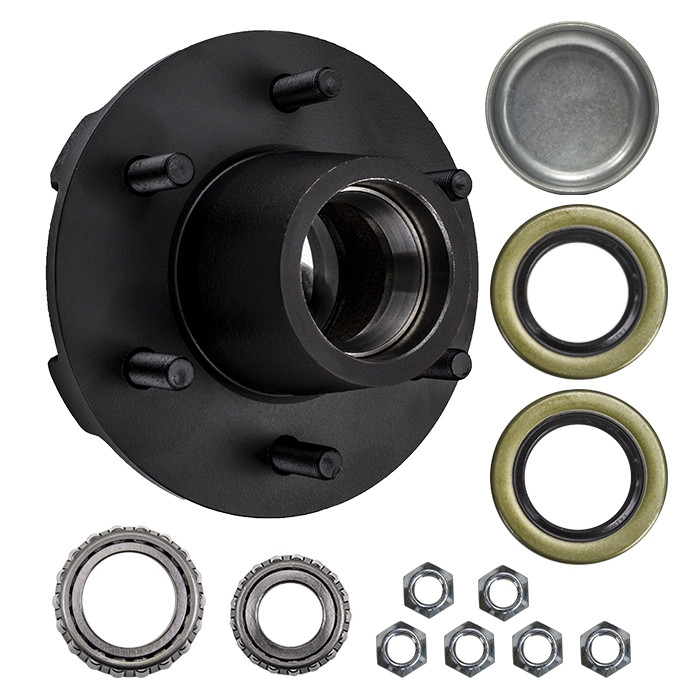
How do I diagnose and address noise issues associated with a malfunctioning axle hub?
Diagnosing and addressing noise issues associated with a malfunctioning axle hub requires a systematic approach to identify the root cause and take appropriate corrective measures. Here’s a detailed explanation of the diagnostic process and steps to address the problem:
1. Identify the Noise:
The first step is to identify the specific noise associated with the malfunctioning axle hub. Pay attention to the type and characteristics of the noise, such as grinding, growling, clicking, or humming. Note when the noise occurs, whether it’s during acceleration, deceleration, or while turning. This initial identification can help narrow down the possible causes.
2. Inspect the Axle Hub:
Visually inspect the axle hub for any signs of damage or wear. Look for cracks, corrosion, or loose components. Check if there is any leaking grease around the hub, as it can indicate bearing failure. A thorough inspection can provide valuable clues about the condition of the axle hub.
3. Perform a Road Test:
Take the vehicle for a road test to observe the noise and its behavior under different driving conditions. Pay attention to any changes in the noise when making turns, accelerating, or braking. Note whether the noise gets louder or changes in pitch. This can help in further narrowing down the issue.
4. Jack up the Vehicle:
If the noise persists and is suspected to be coming from the axle hub, jack up the vehicle and secure it with jack stands. Rotate the wheel associated with the suspected axle hub and listen for any abnormal noise or roughness. Try to wiggle the wheel by hand to check for excessive play or looseness, which can indicate a problem with the hub assembly.
5. Check Wheel Bearings:
A common cause of noise issues in axle hubs is worn-out or damaged wheel bearings. To check the wheel bearings, grasp the tire at the 12 o’clock and 6 o’clock positions and attempt to rock it back and forth. Excessive movement or play indicates a potential problem with the wheel bearings. Additionally, spin the wheel and listen for any grinding or rumbling noises, which can also be indicative of bearing issues.
6. Addressing the Issue:
If a malfunctioning axle hub is identified as the source of the noise, the following steps can be taken to address the problem:
- Replacement: If the axle hub is severely damaged or the bearings are worn out, replacing the entire hub assembly is often recommended. This ensures proper fitment, bearing integrity, and overall reliability. Consult the vehicle’s service manual or seek professional assistance for the correct replacement procedure.
- Bearing Replacement: In some cases, it may be possible to replace the wheel bearings within the axle hub if they are the sole source of the noise issue. This requires specialized tools and expertise, so it is advisable to consult a qualified mechanic for bearing replacement.
- Additional Repairs: Depending on the severity of the issue, it may be necessary to address other related components. This can include replacing damaged CV joints, inspecting and replacing worn brake components, or addressing any other issues identified during the diagnostic process.
7. Post-Repair Verification:
After addressing the noise issue by repairing or replacing the malfunctioning axle hub, take the vehicle for a test drive to verify that the noise is eliminated. Ensure that the vehicle operates smoothly, and there are no abnormal vibrations or noises coming from the axle hub during different driving conditions.
It’s important to note that diagnosing and addressing noise issues associated with a malfunctioning axle hub can be complex, and it may require the expertise of a qualified mechanic. If you’re uncomfortable performing the diagnostics and repairs yourself, it’s advisable to seek professional assistance to ensure an accurate diagnosis and proper resolution of the issue.
In summary, diagnosing and addressing noise issues associated with a malfunctioning axle hub involves identifying the noise, inspecting the hub, performing a road test, checking wheel bearings, and taking appropriate repair or replacement measures. Following a systematic approach and seeking professional help when needed can help resolve the noise issue and ensure the safe operation of the vehicle.
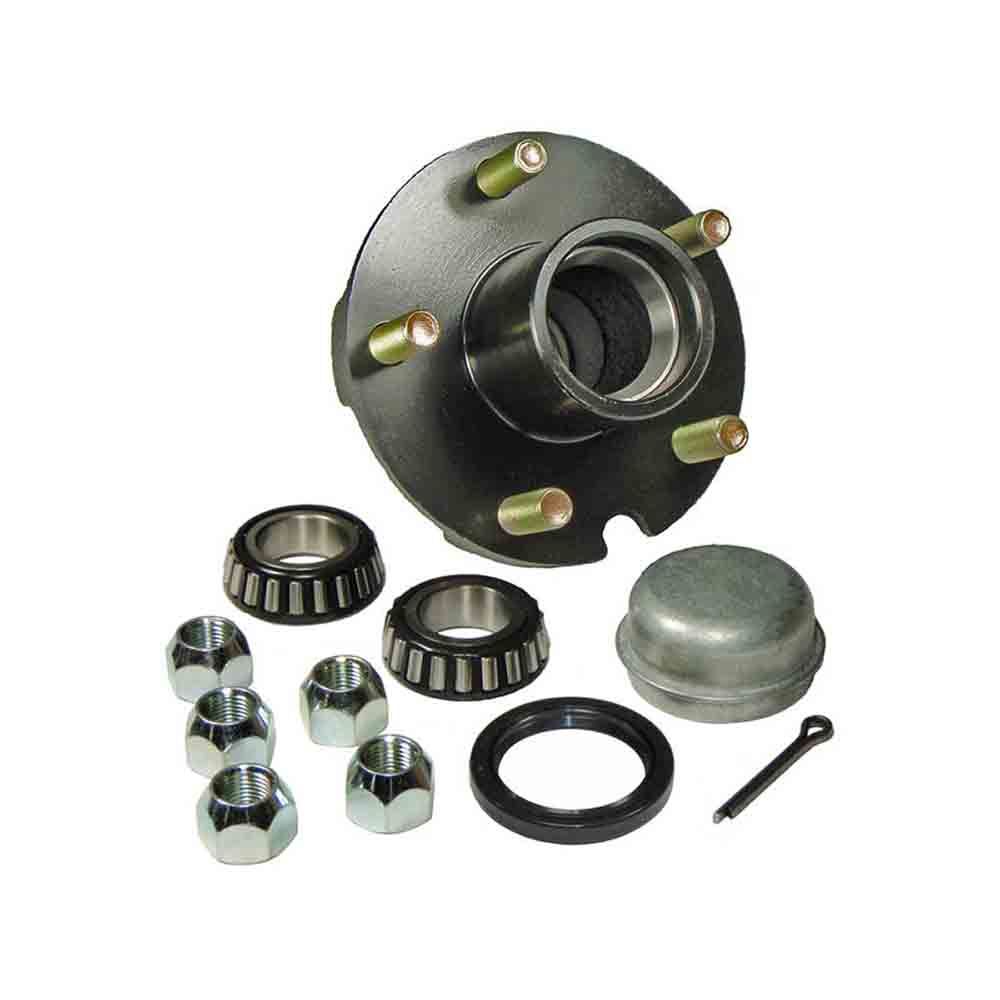
Where can I find a comprehensive guide for DIY replacement of an axle hub?
If you are looking for a comprehensive guide to assist you with the DIY (Do-It-Yourself) replacement of an axle hub, there are several reliable sources you can refer to. Here’s a detailed explanation:
- Manufacturer’s Service Manual: The first and most authoritative source of information for any vehicle repair or maintenance task is the manufacturer’s service manual. The service manual provides detailed instructions, diagrams, and specifications specific to your vehicle’s make, model, and year. It covers all aspects of the vehicle, including axle hub replacement procedures. You can usually obtain the manufacturer’s service manual from the vehicle manufacturer’s official website or through authorized dealerships.
- Online Repair Guides: Many reputable automotive websites and forums offer comprehensive online repair guides. These guides often include step-by-step instructions, accompanied by photographs or illustrations, to help you through the process of replacing an axle hub. Some websites compile user-contributed guides, while others are created by automotive professionals. Popular sources for online repair guides include AutoZone, RepairPal, and iFixit.
- Video Tutorials: Video tutorials can be invaluable resources for visual learners. Websites like YouTube host a wide range of DIY automotive repair videos that cover various tasks, including axle hub replacement. Watching a video tutorial can provide a clear demonstration of the required steps, tools, and techniques involved in the process. You can search for specific video tutorials by using keywords such as “DIY axle hub replacement” along with your vehicle’s make and model.
- Automotive Forums: Online automotive forums are communities where enthusiasts and professionals share knowledge and experiences. Forums like Reddit’s r/MechanicAdvice, Automotive Forums, or specific forums dedicated to your vehicle’s make or model can be excellent sources of information. You can search or post questions specific to axle hub replacement, and experienced members may provide detailed guidance, tips, or even links to comprehensive guides they have found useful.
- Library Resources: Public libraries often have a selection of automotive repair manuals and guides available for borrowing. These printed resources can provide comprehensive instructions and illustrations for various repair tasks, including axle hub replacement. Look for repair manuals specific to your vehicle’s make, model, and year in the automotive section of your local library.
When using any guide or resource for DIY repairs, it’s important to exercise caution and ensure your own safety. Follow all recommended safety procedures, use the appropriate tools, and take necessary precautions. If you are unsure or uncomfortable with any aspect of the repair process, it is advisable to seek assistance from a qualified mechanic or professional technician.
In summary, a comprehensive guide for DIY replacement of an axle hub can be found in various sources such as the manufacturer’s service manual, online repair guides, video tutorials, automotive forums, and library resources. These resources provide step-by-step instructions and guidance to help you successfully replace an axle hub. Remember to prioritize safety and seek professional help if needed.
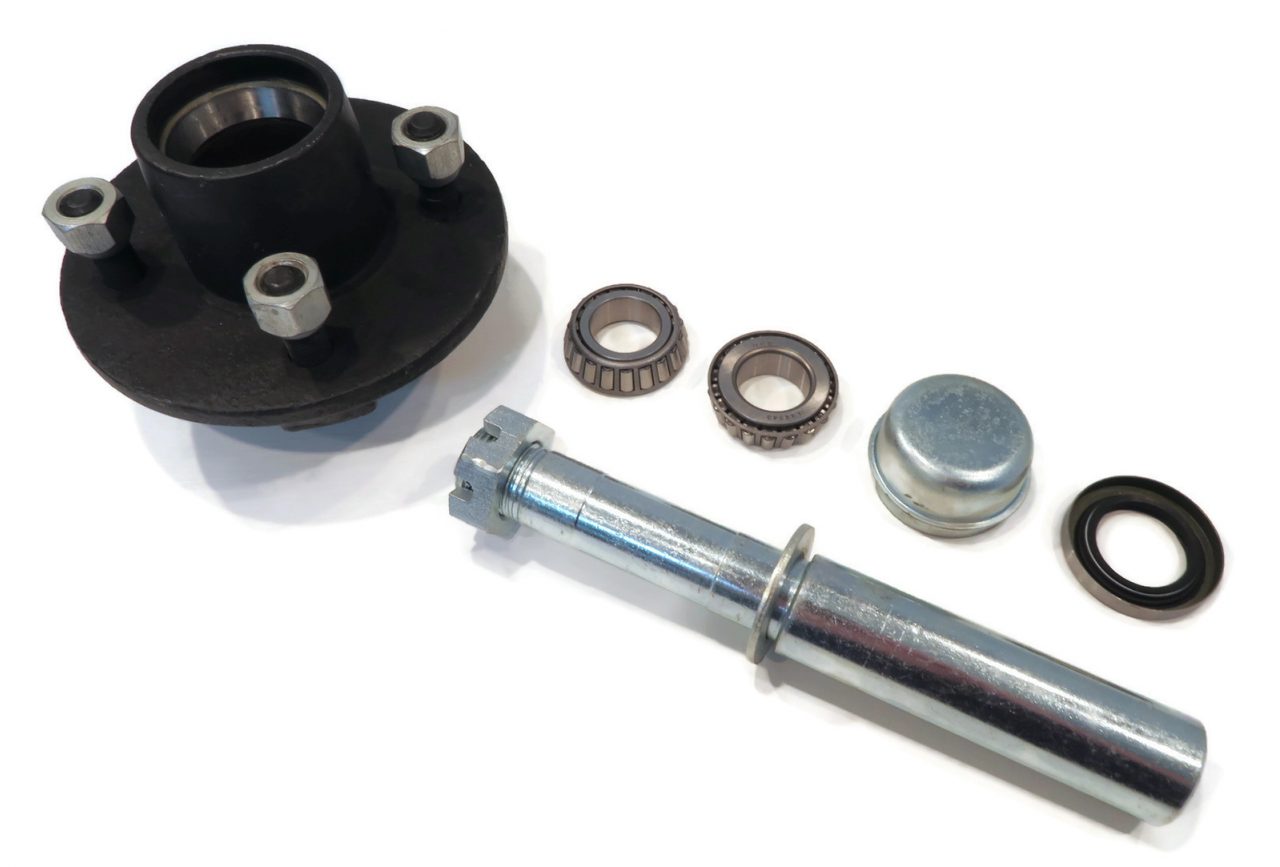
Where can I access reliable resources for understanding the relationship between axles and hubs?
When seeking reliable resources to understand the relationship between axles and hubs, there are several avenues you can explore. Here’s a detailed explanation:
1. Manufacturer’s Documentation: The first place to look for information is the official documentation provided by the vehicle manufacturer. Consult the owner’s manual or technical service manuals for your specific vehicle model. These resources often contain detailed explanations, diagrams, and specifications regarding axles and hubs, including their relationship and functionality.
2. Automotive Repair and Service Manuals: Automotive repair and service manuals, such as those published by Haynes or Chilton, can be valuable sources of information. These manuals provide comprehensive guidance on various vehicle systems, including axles and hubs. They often include step-by-step instructions, diagrams, and troubleshooting tips to help you understand the relationship between axles and hubs.
3. Online Forums and Communities: Online forums and communities dedicated to automotive enthusiasts or specific vehicle makes and models can be excellent resources. These platforms provide opportunities to interact with experienced individuals who may have in-depth knowledge about axles and hubs. Participating in discussions, asking questions, and sharing experiences can help you gain insights and a better understanding of the relationship between axles and hubs.
4. Professional Mechanics and Technicians: Consulting with professional mechanics or technicians who specialize in your specific vehicle make or have expertise in axles and hubs can provide valuable information. They can explain the relationship between axles and hubs, answer your questions, and provide practical insights based on their experience. Local service centers or authorized dealerships are good places to seek professional advice.
5. Educational Institutions: Technical schools, vocational programs, and community colleges often offer courses or resources related to automotive technology. Consider exploring their curriculum or reaching out to instructors who can provide educational materials or guidance on understanding axles and hubs.
6. Online Research and Publications: Conducting online research can lead you to various publications, articles, and websites that provide information on axles and hubs. However, it’s crucial to critically evaluate the credibility and reliability of the sources. Look for reputable websites, publications from trusted automotive organizations, or articles written by experts in the field.
Remember to cross-reference information from multiple sources to ensure accuracy and reliability. It’s also important to stay up to date with the latest advancements and industry standards in the automotive field, as knowledge and technology can evolve over time.
In summary, to access reliable resources for understanding the relationship between axles and hubs, consider consulting manufacturer’s documentation, automotive repair manuals, online forums, professional mechanics, educational institutions, and conducting online research. By exploring these avenues, you can gain comprehensive knowledge and a better understanding of the relationship between axles and hubs.


editor by CX 2023-11-09
China factory Good Quality Auto Parts Rear Axle Car Wheel Hub for Peugeot 206 Hub Unit Bearing Vkba3659 OEM 3748.76 3748.79 boat trailer axle
Product Description
Basic information:
| Description | Good Quality Rear Axle Car Wheel Hub For PEUGEOT 206 Hub Unit Bearing VKBA3659 OEM 3748.76 3748.79 |
| Material | Chrome steel Gcr15 |
| Application | For CITROEN For PEUGEOT |
| Size | Rim Hole Number: 4 Flange Ø: 129 mm |
| Position | Rear wheel |
| With ABS | with integrated ABS sensor |
| Bolts | 4 holes |
| Weight | 1.85 kg |
| Brand | SI, PPB, or customized |
| Packing | Neutral, SI, PPB brand packing or customized |
| OEM/ODM service | Yes |
| Manufacture place | ZHangZhoug, China |
| MOQ | 50 PCS |
| OEM replacement | Yes |
| Inspection | 100% |
| Warranty | 1 year or 40,000-50,000 KMS |
| Certificate | ISO9001:2015 TS16949 |
| Payment | T/T, PayPal, Alibaba |
Detailed pictures:
Wheel bearing kits components:
Bearing 1
Nut 1
Sealing/Protective Cap 1
O.E.:
3748.76
3748.79
Ref.:
F-AG:
FEBI BILSTEIN: 31185
OPTIMAL: 657151
S-KF: VKBA 3659
SNR: R166.32
Application:
For CITROEN C3 I (FC_) (2002/02 – /)
For CITROEN C3 Pluriel (HB_) (2003/05 – /)
For CITROEN C2 (JM_) (2003/09 – /)
For CITROEN C3 II (2009/11 – /)
For CITROEN C2 ENTERPRISE (2009/04 – /)
For PEUGEOT 206 Hatchback (2A/C) (1998/08 – /)
For PEUGEOT 206 CC (2D) (2000/09 – /)
For PEUGEOT 206 SW (2E/K) (2002/07 – /)
For PEUGEOT 1007 (KM_) (2005/04 – /)
For PEUGEOT 206 Saloon (2007/03 – /)
How to extend the bearing’s life?
Don’t allow strong impact, such as hammer striking, transfer roller pressure
Use the accurate installation tool, avoid using cloth kind and short fibers
Lubricate the bearing to avoid rust with high-quality oil
General inspection, such as the surrounding temperature, vibrate, noise inspection
Keep bearing cleaning from dirt, dust, pollutant, and moisture.
The bearing should not be ultra cooled.
Front Wheel Bearing Hub Assembly Replacement, Wheel Bearing & Hub Assembly, Hub Bearing Assembly, front bearing hub replacement, hub and bearing replacement, wheel hub bearings, front wheel bearing hub assembly, front wheel bearing hub replacement, hub bearing assembly front, wheel hub assembly, bearing assembly, Front Wheel Bearing and Hub Assembly, Front Wheel Drive Hub and Bearing Assembly
Packing and Delivery:
Work shop:
Exhibitions:
FAQ:
Q1.What is your shipping logistic?
Re: DHL, TNT, FedEx express, by air/sea/train.
Q2:What’s the MOQ?
Re: For the wheel hub assembly. The MOQ is always 50 sets. If ordering together with other models, small quantities can be organized. But need more time due to the production schedule.
Q3. What are your goods of packing?
Re: Generally, our goods will be packed in Neutral white or brown boxes for the hub bearing unit. Our brand packing SI & CZPT are offered. If you have any other packing requests, we shall also handle them.
Q4. What is your sample policy?
Re: We can supply the sample if we have ready parts in stock.
Q5. Do you have any certificates?
Re: Yes, we have the certificate of ISO9001:2015.
Q6:Any warranty of your products.
Re: Sure, We are offering a guarantee for 12 months or 40,000-50,000 km for the aftermarket.
Q7: How can I make an inquiry?
Re: You can contact us by email, telephone, WhatsApp, , etc.
Q8: How long can reply inquiry?
Re: Within 24 hours.
Q9: What’s the delivery time?
Re: Ready stock 10-15 days, production for 30 to 45 days.
Q10: How do you maintain our good business relationship?
Re: 1. Keep stable, reliable quality, competitive price to ensure our customer’s benefit;
2. Optimal lead time.
3. Keep customers updated about the new goods.
4. Make customers satisfaction as our main goal.
Q11: Can we visit the company & factory?
Re: Yes, welcome for your visit & business discussion.
| After-sales Service: | Yes |
|---|---|
| Warranty: | Yes |
| Type: | Wheel Hub Bearing |
| Samples: |
US$ 50/Piece
1 Piece(Min.Order) | Order Sample |
|---|
| Customization: |
Available
| Customized Request |
|---|
.shipping-cost-tm .tm-status-off{background: none;padding:0;color: #1470cc}
|
Shipping Cost:
Estimated freight per unit. |
about shipping cost and estimated delivery time. |
|---|
| Payment Method: |
|
|---|---|
|
Initial Payment Full Payment |
| Currency: | US$ |
|---|
| Return&refunds: | You can apply for a refund up to 30 days after receipt of the products. |
|---|

Are there differences between front and rear axle hubs in terms of design and function?
Yes, there are differences between front and rear axle hubs in terms of design and function. Here’s a detailed explanation of these differences:
1. Design:
The design of front and rear axle hubs can vary based on the specific requirements of each axle position.
Front Axle Hubs: Front axle hubs are typically more complex in design compared to rear axle hubs. This is because front axle hubs are often responsible for connecting the wheels to the steering system and accommodating the front-wheel drive components. Front axle hubs may have provisions for attaching CV (constant velocity) joints, which are necessary for transmitting power from the engine to the front wheels in front-wheel drive or all-wheel drive vehicles. The design of front axle hubs may also incorporate features for connecting the brake rotor, allowing for the integration of the braking system.
Rear Axle Hubs: Rear axle hubs generally have a simpler design compared to front axle hubs. They are primarily responsible for connecting the wheels to the rear axle shafts and supporting the wheel bearings. Rear axle hubs may not require the same level of complexity as front axle hubs since they do not need to accommodate steering components or transmit power from the engine. However, rear axle hubs still play a critical role in supporting the weight of the vehicle, transmitting driving forces, and integrating with the brake system.
2. Function:
The function of front and rear axle hubs differs based on the specific demands placed on each axle position.
Front Axle Hubs: Front axle hubs have the following primary functions:
- Connect the wheel to the steering system, allowing for controlled steering and maneuverability.
- Support the wheel bearings to facilitate smooth wheel rotation and weight distribution.
- Integrate with the front-wheel drive components, such as CV joints, to transmit power from the engine to the front wheels.
- Provide a mounting point for the brake rotor or drum, allowing for the integration of the braking system.
Rear Axle Hubs: Rear axle hubs have the following primary functions:
- Connect the wheel to the rear axle shaft, facilitating power transmission and driving forces.
- Support the wheel bearings to enable smooth wheel rotation and weight distribution.
- Integrate with the brake system, providing a mounting point for the brake rotor or drum for braking performance.
3. Load Distribution:
Front and rear axle hubs also differ in terms of load distribution.
Front Axle Hubs: Front axle hubs bear the weight of the engine, transmission, and other front-end components. They also handle a significant portion of the vehicle’s braking forces during deceleration. As a result, front axle hubs need to be designed to handle higher loads and provide sufficient strength and durability.
Rear Axle Hubs: Rear axle hubs primarily bear the weight of the vehicle’s rear end and support the differential and rear axle shafts. The braking forces on the rear axle hubs are typically lower compared to the front axle hubs. However, they still need to be robust enough to handle the forces generated during acceleration, deceleration, and cornering.
In summary, there are differences between front and rear axle hubs in terms of design and function. Front axle hubs are typically more complex and accommodate steering components and front-wheel drive systems, while rear axle hubs have a simpler design focused on supporting the rear axle and integrating with the brake system. Understanding these differences is important for proper maintenance and repair of the axle hubs in a vehicle.
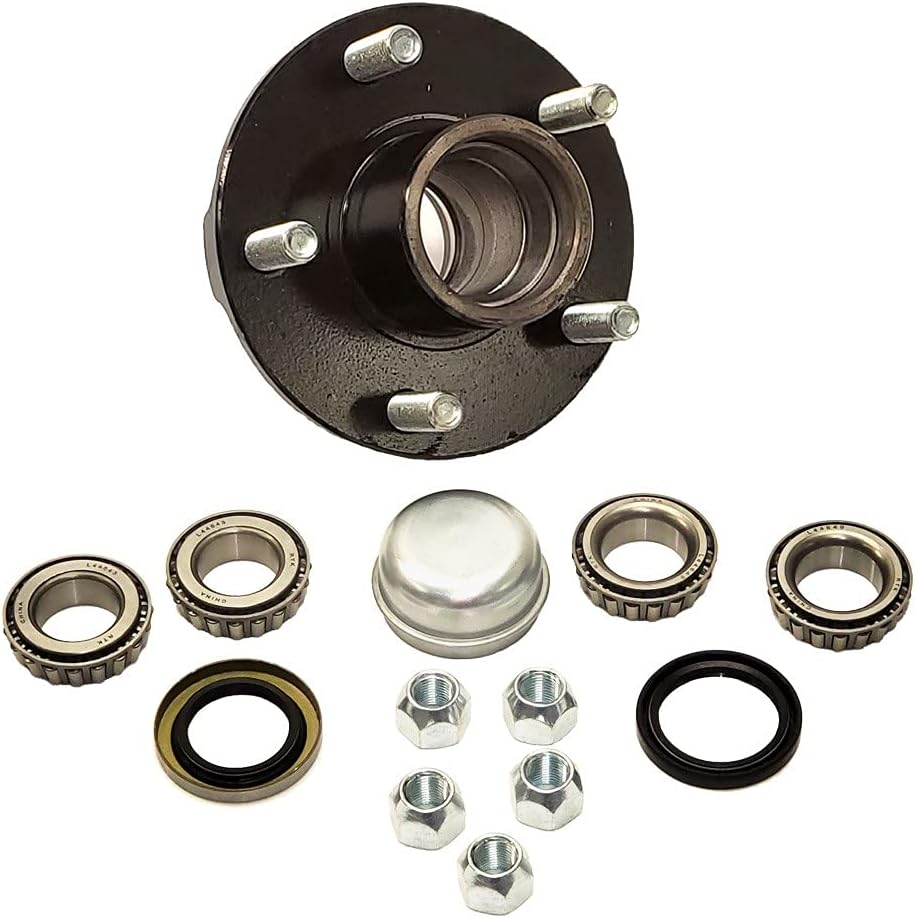
Are there specific tools required for DIY axle hub replacement, and where can I find them?
When undertaking a DIY axle hub replacement, certain tools are needed to ensure a smooth and successful process. Here are some specific tools that are commonly required for DIY axle hub replacement and where you can find them:
- Jack and jack stands: These tools are essential for raising the vehicle off the ground and providing a stable support system. You can find jacks and jack stands at automotive supply stores, hardware stores, and online retailers.
- Lug wrench or socket set: A lug wrench or a socket set with the appropriate size socket is necessary to loosen and tighten the lug nuts on the wheel. These tools are commonly available at automotive supply stores, hardware stores, and online retailers.
- Torque wrench: A torque wrench is required to tighten the lug nuts on the wheel and other fasteners to the manufacturer’s recommended torque specifications. Torque wrenches can be found at automotive supply stores, tool stores, and online retailers.
- Pry bar: A pry bar is useful for gently separating the axle hub assembly from the mounting point, especially if it is tightly secured. Pry bars are available at automotive supply stores, hardware stores, and online retailers.
- Hammer: A hammer can be used to tap or lightly strike the axle hub assembly or its components for removal or installation. Hammers are commonly available at hardware stores, tool stores, and online retailers.
- Wheel bearing grease: High-quality wheel bearing grease is necessary for lubricating the axle hub assembly and ensuring smooth operation. Wheel bearing grease can be purchased at automotive supply stores, lubricant suppliers, and online retailers.
- Additional tools: Depending on the specific vehicle and axle hub assembly, you may require additional tools such as a socket set, wrenches, pliers, or specific specialty tools. Consult the vehicle’s service manual or online resources for the specific tools needed for your vehicle model.
To find these tools, you can visit local automotive supply stores, hardware stores, or tool stores in your area. They typically carry a wide range of automotive tools and equipment. Alternatively, you can explore online retailers that specialize in automotive tools and equipment, where you can conveniently browse and purchase the tools you need.
It’s important to ensure that the tools you acquire are of good quality and suitable for the task at hand. Investing in quality tools can make the DIY axle hub replacement process more efficient and help achieve better results. Additionally, always follow the manufacturer’s instructions and safety guidelines when using tools and equipment.
In summary, specific tools are required for DIY axle hub replacement, such as a jack and jack stands, lug wrench or socket set, torque wrench, pry bar, hammer, and wheel bearing grease. These tools can be found at automotive supply stores, hardware stores, tool stores, and online retailers. Acquiring quality tools and following proper safety guidelines will contribute to a successful DIY axle hub replacement.
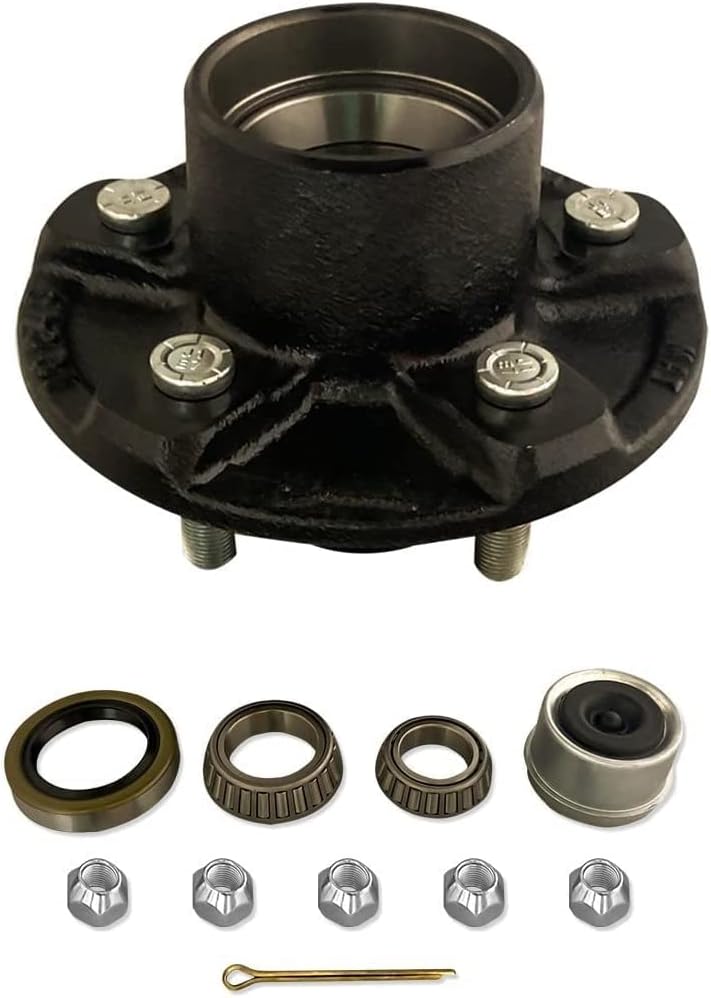
What are the torque specifications for securing an axle hub to the vehicle?
The torque specifications for securing an axle hub to the vehicle may vary depending on the specific make, model, and year of the vehicle. It is crucial to consult the manufacturer’s service manual or appropriate technical resources for the accurate torque specifications for your particular vehicle. Here’s a detailed explanation:
- Manufacturer’s Service Manual: The manufacturer’s service manual is the most reliable and authoritative source for torque specifications. It provides detailed information specific to your vehicle, including the recommended torque values for various components, such as the axle hub. The service manual may specify different torque values for different vehicle models or configurations. You can usually obtain the manufacturer’s service manual from the vehicle manufacturer’s official website or through authorized dealerships.
- Technical Resources: In addition to the manufacturer’s service manual, there are other technical resources available that provide torque specifications. These resources may include specialized automotive repair guides, online databases, or torque specification charts. Reputable automotive websites, professional repair manuals, or automotive forums dedicated to your vehicle’s make or model can be valuable sources for finding accurate torque specifications.
- Online Databases: Some websites offer online databases or torque specification tools that allow you to search for specific torque values based on your vehicle’s make, model, and year. These databases compile torque specifications from various sources and provide a convenient way to access the required information. However, it’s important to verify the accuracy and reliability of the source before relying on the provided torque values.
- Manufacturer Recommendations: In certain cases, the manufacturer may provide torque specifications on the packaging or documentation that accompanies the replacement axle hub. If you are using an OEM (Original Equipment Manufacturer) or aftermarket axle hub, it is advisable to check any provided documentation for torque recommendations specific to that particular product.
Regardless of the source you use to obtain torque specifications, it is essential to follow the recommended values precisely. Torque specifications are specified to ensure proper tightening and secure attachment of the axle hub to the vehicle. Over-tightening or under-tightening can lead to issues such as damage to components, improper seating, or premature wear. It is recommended to use a reliable torque wrench to achieve the specified torque values accurately.
In summary, the torque specifications for securing an axle hub to the vehicle depend on the specific make, model, and year of the vehicle. The manufacturer’s service manual, technical resources, online databases, and manufacturer recommendations are valuable sources to obtain accurate torque specifications. It is crucial to follow the recommended torque values precisely to ensure proper installation and avoid potential issues.


editor by CX 2023-10-30
China best Original Good Quality Car Truck Bus Vehicle Front Axle Rear Axle Hub005-64 Auto Wheel Hub Bearing near me factory
Product Description
CORES Auto bearing:
1. Material: Bearing steel or chrome steel
2. Features:
A. auto wheel hub bearings are adopted with international superior raw material and high-class grease from USA Shell grease.
B. The series auto wheel hub bearings are in the nature of frame structure, light weight, large rated burden, strong resistant capability, CZPT stability, good dustproof performance and etc.
C. Auto wheel hub bearing can be endured bidirectional axial load and major radial load and sealed bearings are unnecessary to add lubricant additives upon assembly.
3. Application: Auto wheel bearing are mainly used on Ford, Chrysler, Benz, BMW, Audi, FIAT, Seat, Isuzu, Polo, Renault, Peugeot, Toyota, Nissan, Santana and etc.
4. Size: We principally provides automotive wheel hub bearings for open formula, single or double shield from 25mm to 43mm on inner diameter.
5. Packing: Carton and pallet
| Wheel Hub Bearings | ||||||||||||||
| Bearing N0. | Dimensions(mm) | Net Weight | Seal | Use in automotive | ||||||||||
| CORES Bearing | d | D | B | C | (Kg) | |||||||||
| DAC124 | 546467 576467 | BAHB445539 | FC12571 GB4571 FC12784S03 | IR-2220 | C525 L29 | |||||||||
| DAC2552 | HB-3080C/SBR | 513116 | ||||||||||||
| DAC306E1 AU 0571 -4LL | BAH/SBR | IR-8622 | ||||||||||||
| DAC3564 | GB12807S03 GB40706 | IR-8066 | 770309571 | |||||||||||
| DAC37725717 | 527631 | BA2B 633571CB | ||||||||||||
| DAC3772571 | 562398A | BAHB633531B BAHBC 439622C 540360 | 4TCRI-0868 De571 | BA2B 309692 BA2B 35716 BAHB 35711 BAHB 311315BD | 39BWD02 39BWD03CA69 | IR-8052 IR-8111 | ||||||||
| DAC3968 BAHB 311396B BAHB | BAHB311443B | GB12320 S02 | IR-8095 | Fw130 | ||||||||||
| DAC40720637 | 51 | |||||||||||||
| DAC4074A | GB12399 S01 | IR-8530 | 328723 | |||||||||||
| DAC4571033 | 55580 539166 | 40BWD08AC55 | 51D 521771 | BA2B633457 BAHB311424A BAHB309245 BAHB603694A BAHB633196 BAHB633791 | GB12571 | IR-8061 IR-8509 | 513102 513112 LR571 | |||||||
| DAC4276 | BA2B35718 BA2B309609 | IR-8515 | 513154 | |||||||||||
| DAC4282 | BA2B446047 BAHB446097 GB4571 | GB12163S04 GB12875 GB4571 | IR-8086 IR-8642 | 513073 | ||||||||||
| DAC4282 | ||||||||||||||
| DAC458A | BAHB633960 | |||||||||||||
| DAC45870041 | ||||||||||||||
| DAC48860042/40 | 48BWD02 | |||||||||||||
| DAC48890044/42 | DAC4889WS | 48BWD01 | 510050 | |||||||||||
| DAC49880046 | 572506E | 49BWD01B | ||||||||||||
| DAC49840048 | DAC498448WCS47 | DU4984-7 | BTHB329129DE | FC40120S01 | JXC25469DB | |||||||||
| DAC50900034 | 528514 | BAHB633007C | ||||||||||||
| DAC49900045 | ||||||||||||||
Calculating the Deflection of a Worm Shaft
In this article, we’ll discuss how to calculate the deflection of a worm gear’s worm shaft. We’ll also discuss the characteristics of a worm gear, including its tooth forces. And we’ll cover the important characteristics of a worm gear. Read on to learn more! Here are some things to consider before purchasing a worm gear. We hope you enjoy learning! After reading this article, you’ll be well-equipped to choose a worm gear to match your needs.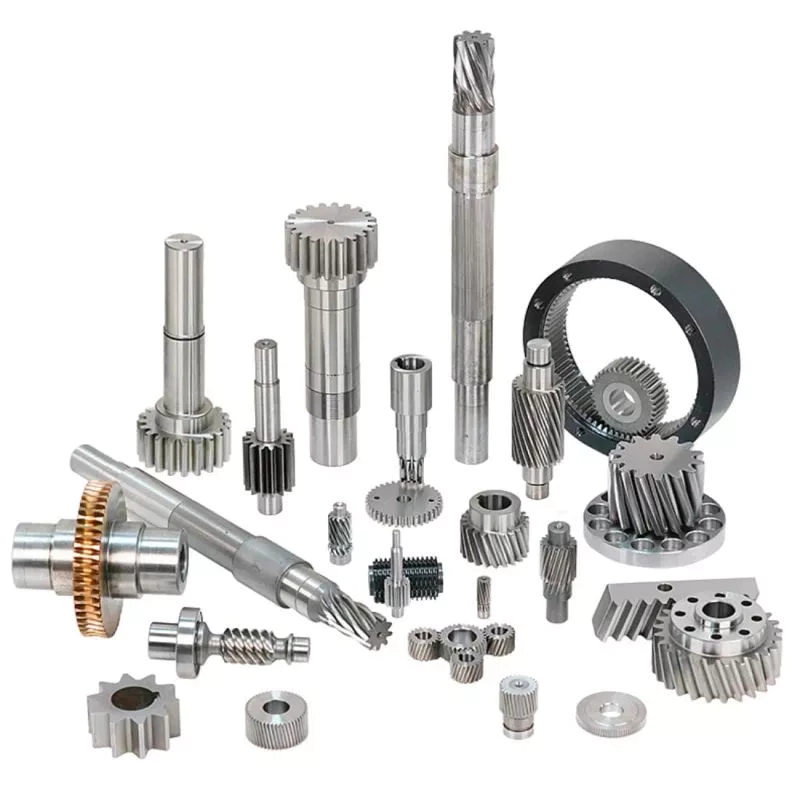
Calculation of worm shaft deflection
The main goal of the calculations is to determine the deflection of a worm. Worms are used to turn gears and mechanical devices. This type of transmission uses a worm. The worm diameter and the number of teeth are inputted into the calculation gradually. Then, a table with proper solutions is shown on the screen. After completing the table, you can then move on to the main calculation. You can change the strength parameters as well.
The maximum worm shaft deflection is calculated using the finite element method (FEM). The model has many parameters, including the size of the elements and boundary conditions. The results from these simulations are compared to the corresponding analytical values to calculate the maximum deflection. The result is a table that displays the maximum worm shaft deflection. The tables can be downloaded below. You can also find more information about the different deflection formulas and their applications.
The calculation method used by DIN EN 10084 is based on the hardened cemented worm of 16MnCr5. Then, you can use DIN EN 10084 (CuSn12Ni2-C-GZ) and DIN EN 1982 (CuAl10Fe5Ne5-C-GZ). Then, you can enter the worm face width, either manually or using the auto-suggest option.
Common methods for the calculation of worm shaft deflection provide a good approximation of deflection but do not account for geometric modifications on the worm. While Norgauer’s 2021 approach addresses these issues, it fails to account for the helical winding of the worm teeth and overestimates the stiffening effect of gearing. More sophisticated approaches are required for the efficient design of thin worm shafts.
Worm gears have a low noise and vibration compared to other types of mechanical devices. However, worm gears are often limited by the amount of wear that occurs on the softer worm wheel. Worm shaft deflection is a significant influencing factor for noise and wear. The calculation method for worm gear deflection is available in ISO/TR 14521, DIN 3996, and AGMA 6022.
The worm gear can be designed with a precise transmission ratio. The calculation involves dividing the transmission ratio between more stages in a gearbox. Power transmission input parameters affect the gearing properties, as well as the material of the worm/gear. To achieve a better efficiency, the worm/gear material should match the conditions that are to be experienced. The worm gear can be a self-locking transmission.
The worm gearbox contains several machine elements. The main contributors to the total power loss are the axial loads and bearing losses on the worm shaft. Hence, different bearing configurations are studied. One type includes locating/non-locating bearing arrangements. The other is tapered roller bearings. The worm gear drives are considered when locating versus non-locating bearings. The analysis of worm gear drives is also an investigation of the X-arrangement and four-point contact bearings.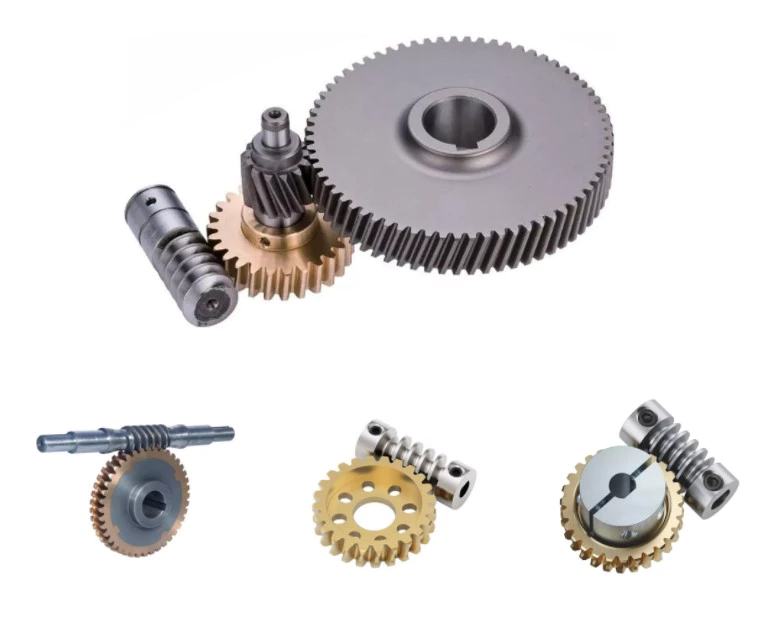
Influence of tooth forces on bending stiffness of a worm gear
The bending stiffness of a worm gear is dependent on tooth forces. Tooth forces increase as the power density increases, but this also leads to increased worm shaft deflection. The resulting deflection can affect efficiency, wear load capacity, and NVH behavior. Continuous improvements in bronze materials, lubricants, and manufacturing quality have enabled worm gear manufacturers to produce increasingly high power densities.
Standardized calculation methods take into account the supporting effect of the toothing on the worm shaft. However, overhung worm gears are not included in the calculation. In addition, the toothing area is not taken into account unless the shaft is designed next to the worm gear. Similarly, the root diameter is treated as the equivalent bending diameter, but this ignores the supporting effect of the worm toothing.
A generalized formula is provided to estimate the STE contribution to vibratory excitation. The results are applicable to any gear with a meshing pattern. It is recommended that engineers test different meshing methods to obtain more accurate results. One way to test tooth-meshing surfaces is to use a finite element stress and mesh subprogram. This software will measure tooth-bending stresses under dynamic loads.
The effect of tooth-brushing and lubricant on bending stiffness can be achieved by increasing the pressure angle of the worm pair. This can reduce tooth bending stresses in the worm gear. A further method is to add a load-loaded tooth-contact analysis (CCTA). This is also used to analyze mismatched ZC1 worm drive. The results obtained with the technique have been widely applied to various types of gearing.
In this study, we found that the ring gear’s bending stiffness is highly influenced by the teeth. The chamfered root of the ring gear is larger than the slot width. Thus, the ring gear’s bending stiffness varies with its tooth width, which increases with the ring wall thickness. Furthermore, a variation in the ring wall thickness of the worm gear causes a greater deviation from the design specification.
To understand the impact of the teeth on the bending stiffness of a worm gear, it is important to know the root shape. Involute teeth are susceptible to bending stress and can break under extreme conditions. A tooth-breakage analysis can control this by determining the root shape and the bending stiffness. The optimization of the root shape directly on the final gear minimizes the bending stress in the involute teeth.
The influence of tooth forces on the bending stiffness of a worm gear was investigated using the CZPT Spiral Bevel Gear Test Facility. In this study, multiple teeth of a spiral bevel pinion were instrumented with strain gages and tested at speeds ranging from static to 14400 RPM. The tests were performed with power levels as high as 540 kW. The results obtained were compared with the analysis of a three-dimensional finite element model.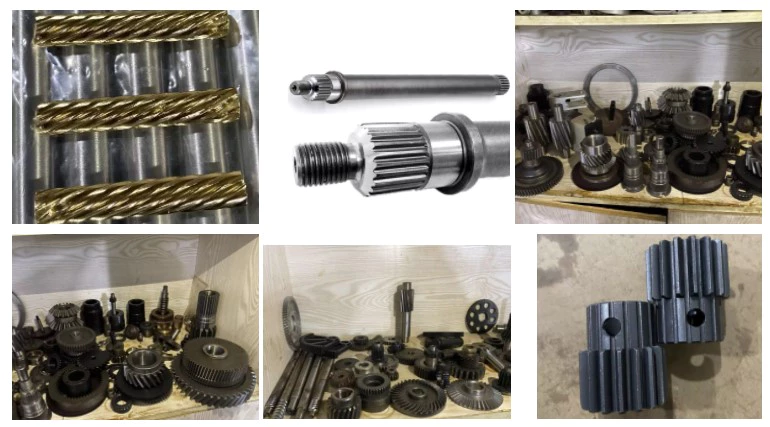
Characteristics of worm gears
Worm gears are unique types of gears. They feature a variety of characteristics and applications. This article will examine the characteristics and benefits of worm gears. Then, we’ll examine the common applications of worm gears. Let’s take a look! Before we dive in to worm gears, let’s review their capabilities. Hopefully, you’ll see how versatile these gears are.
A worm gear can achieve massive reduction ratios with little effort. By adding circumference to the wheel, the worm can greatly increase its torque and decrease its speed. Conventional gearsets require multiple reductions to achieve the same reduction ratio. Worm gears have fewer moving parts, so there are fewer places for failure. However, they can’t reverse the direction of power. This is because the friction between the worm and wheel makes it impossible to move the worm backwards.
Worm gears are widely used in elevators, hoists, and lifts. They are particularly useful in applications where stopping speed is critical. They can be incorporated with smaller brakes to ensure safety, but shouldn’t be relied upon as a primary braking system. Generally, they are self-locking, so they are a good choice for many applications. They also have many benefits, including increased efficiency and safety.
Worm gears are designed to achieve a specific reduction ratio. They are typically arranged between the input and output shafts of a motor and a load. The 2 shafts are often positioned at an angle that ensures proper alignment. Worm gear gears have a center spacing of a frame size. The center spacing of the gear and worm shaft determines the axial pitch. For instance, if the gearsets are set at a radial distance, a smaller outer diameter is necessary.
Worm gears’ sliding contact reduces efficiency. But it also ensures quiet operation. The sliding action limits the efficiency of worm gears to 30% to 50%. A few techniques are introduced herein to minimize friction and to produce good entrance and exit gaps. You’ll soon see why they’re such a versatile choice for your needs! So, if you’re considering purchasing a worm gear, make sure you read this article to learn more about its characteristics!
An embodiment of a worm gear is described in FIGS. 19 and 20. An alternate embodiment of the system uses a single motor and a single worm 153. The worm 153 turns a gear which drives an arm 152. The arm 152, in turn, moves the lens/mirr assembly 10 by varying the elevation angle. The motor control unit 114 then tracks the elevation angle of the lens/mirr assembly 10 in relation to the reference position.
The worm wheel and worm are both made of metal. However, the brass worm and wheel are made of brass, which is a yellow metal. Their lubricant selections are more flexible, but they’re limited by additive restrictions due to their yellow metal. Plastic on metal worm gears are generally found in light load applications. The lubricant used depends on the type of plastic, as many types of plastics react to hydrocarbons found in regular lubricant. For this reason, you need a non-reactive lubricant.


China Standard Axle Front Wheel Bearing Japan Auto Rear Wheel Bearing Hub for CZPT Vitsz Hiace Altis Mits Dac25520043 Dac2050043/45 Dac25550043 Auto Bearing with high quality
Product Description
Product Description
Axle Front Wheel Bearing Japan Auto Rear Wheel Bearing Hub for CZPT Vitsz Hiace Altis Mits Dac2552
DAC20420030/29 DAC2 0571 16 DAC2 0571 16 DAC2552037 DAC25520040 DAC25520042 DAC25520043 DAC2050043/45 DAC25550043 DAC2550045 DAC25565716/29 DAC25560032 DAC25605716/29 DAC2562571/17 DAC25720043 DAC27520045/43 DAC27520050 DAC2760050 DAC28580042 DAC28610042 DAC39530037 DAC3 0571 042 DAC3060037 DAC3060037 DAC30600337-4RS DAC3060037/43 DAC30630042 DAC3063030042 DAC30640042 DAC30650571 DAC30670571 DAC30680045 DAC32700038 DAC32720045 DAC32720345 DAC34620037 DAC34640034 DAC34640037 DAC34640037 DAC34660037 DAC356180040 DAC35620040 DAC35640037 DAC35650035 DAC35650037 DAC35660032 DAC35660033 DAC35660037 DAC35680037 DAC35680037 DAC35680045 DAC35685713/30 DAC35725718 DAC35720033 DAC35720033 DAC3572571 DAC35725713/31 DAC35720034 DAC3572571 DAC35720045 DAC35740030 DAC35760054 DAC35770042 DAC36680033 DAC36720033/28 DAC36720034 DAC36720042 DAC3676571/27 DAC3772033 DAC37720037 DAC37725717 DAC3772571 DAC37740045 DAC38650050 DAC38680037 DAC3870037 DAC381700037 DAC38700038 DAC38710033/30 DAC38710039 DAC38720034 DAC38720036/33 DAC38725716/33 DAC38720040 DAC38730040 DAC38740036/33 DAC38740036/33 DAC38745716/33 DAC38740050 DAC38740450 DAC38800036/33 DAC39680037 DAC39680037 DAC39680037 DAC39680637 DAC3968571 DAC39720037 DAC39720037 DAC39720637 DAC39740036/34 DAC39740039 DAC39740 0571 RS DAC39/41750037 DAC40720037 DAC40720637 DAC4571055 DAC40740036/34 DAC40740036 DAC40740040 DAC40740042 DAC4571037 DAC4571033/28 DAC407641/38 DAC40800036/34 DAC408000302 DAC40800034 DAC408000381 DAC40800036 DAC40800045/44 DAC40840040 DAC457180032/17 DAC41680040/35 DAC42720038 DAC42720038/35 DAC42750037 DAC42750037 DAC42760033 DAC42760038/33 DAC42760038/35 DAC42760039 DAC42760040/37 DAC42780038 DAC42780041/38 DAC428000302 DAC42800036/34 DAC42800037 DAC42800042 DAC42800342 DAC42800045 DAC42820036 DAC42820036 DAC42820037 DAC42840036 DAC42840039 DAC4284030039 DAC43760043 DAC43790041/38 DAC43790041 DAC43790045 DAC43800038 DAC43800050/45 DAC43820045 DAC43 DAC44825037 DAC44840042/40 DAC45800045 DAC45830045 DAC45840039 DAC45840041/39 DAC45840042/40 DAC45840045 DAC458500302 DAC45850041 DAC45880039 DAC47810053 DAC47850045 DAC48890044/42 DAC49840043 DAC49840048 DAC49840050 DAC49880046 5908BD 5908B DU5496-5 DAC55900060 DAC56880040/35 DAC559052/40 DAC559054/39
Packaging & Shipping
Company Profile
Our Advantages
Our Advantages:
1. World-Class Bearing: We provide our customers with all types of indigenous bearing with world-class quality.
2. OEM or Non-Stand Bearings: Any requirement for Nonstandard bearings is Easily Fulfilled by us due to its vast knowledge and links in the industry.
3. Genuine products With Excellent Quality: The company has always proved the 100% quality products it provides with genuine intent.
4. After Sales Service and Technical Assistance: The company provides after-sales service and technical assistance as per the customer’s requirements and needs.
5. Quick Delivery: The company provides just-in-time delivery with its streamlined supply chain.
SAMPLES
1. Samples quantity: 1-10 PCS are available.
2. Free samples: It depends on the Model No., material and quantity. Some of the bearings samples need client to pay samples charge and shipping cost.
3. It’s better to start your order with Trade Assurance to get full protection for your samples order.
CUSTOMIZED
The customized LOGO or drawing is acceptable for us.
MOQ
1. MOQ: 10 PCS standard bearings.
2. MOQ: 1000 PCS customized your brand bearings.
OEM POLICY
1. We can printing your brand (logo, artwork)on the shield or laser engraving your brand on the shield.
2. We can custom your packaging according to your design
3. All copyright own by clients and we promised don’t disclose any info.
FAQ
1.What is the minimum order quantity for this product?
Can be negotiated, we will try our best to meet customer needs.Our company is mainly based on wholesale sales, most customers’orders are more than 1 ton.
2.What is your latest delivery time?
Most orders will be shipped within 7-15 days of payment being received.
3.Does your company have quality assurance?
Yes, for 1 years.
4.What is the competitiveness of your company’s products compared to other companies?
High precision, high speed, low noise.
5.What are the advantages of your company’s services compared to other companies?
Answer questions online 24 hours a day, reply in a timely manner, and provide various documents required by customers for customs clearance or sales. 100% after-sales service.
6.Which payment method does your company support?
Do our best to meet customer needs, negotiable.
7.How to contact us quickly?
Please send us an inquiry or message and leave your other contact information, such as phone number, account or account, we will contact you as soon as possible and provide the detailed information you need.
Please feel free to contact us, if you have any other question
Screws and Screw Shafts
A screw is a mechanical device that holds objects together. Screws are usually forged or machined. They are also used in screw jacks and press-fitted vises. Their self-locking properties make them a popular choice in many different industries. Here are some of the benefits of screws and how they work. Also read about their self-locking properties. The following information will help you choose the right screw for your application.
Machined screw shaft
A machined screw shaft can be made of various materials, depending on the application. Screw shafts can be made from stainless steel, brass, bronze, titanium, or iron. Most manufacturers use high-precision CNC machines or lathes to manufacture these products. These products come in many sizes and shapes, and they have varying applications. Different materials are used for different sizes and shapes. Here are some examples of what you can use these screws for:
Screws are widely used in many applications. One of the most common uses is in holding objects together. This type of fastener is used in screw jacks, vises, and screw presses. The thread pitch of a screw can vary. Generally, a smaller pitch results in greater mechanical advantage. Hence, a machined screw shaft should be sized appropriately. This ensures that your product will last for a long time.
A machined screw shaft should be compatible with various threading systems. In general, the ASME system is used for threaded parts. The threaded hole occupies most of the shaft. The thread of the bolt occupy either part of the shaft, or the entire one. There are also alternatives to bolts, including riveting, rolling pins, and pinned shafts. These alternatives are not widely used today, but they are useful for certain niche applications.
If you are using a ball screw, you can choose to anneal the screw shaft. To anneal the screw shaft, use a water-soaked rag as a heat barrier. You can choose from 2 different options, depending on your application. One option is to cover the screw shaft with a dust-proof enclosure. Alternatively, you can install a protective heat barrier over the screw shaft. You can also choose to cover the screw shaft with a dust-proof machine.
If you need a smaller size, you can choose a smaller screw. It may be smaller than a quarter of an inch, but it may still be compatible with another part. The smaller ones, however, will often have a corresponding mating part. These parts are typically denominated by their ANSI numerical size designation, which does not indicate threads-per-inch. There is an industry standard for screw sizes that is a little easier to understand.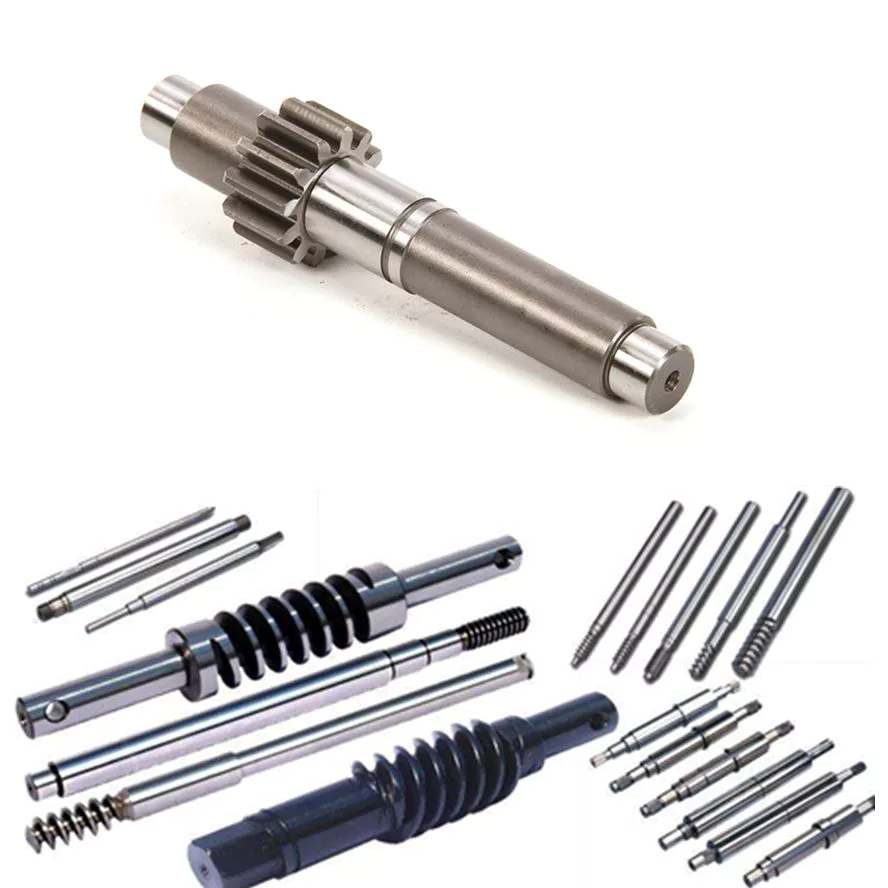
Ball screw nut
When choosing a Ball screw nut for a screw shaft, it is important to consider the critical speed of the machine. This value excites the natural frequency of a screw and determines how fast it can be turned. In other words, it varies with the screw diameter and unsupported length. It also depends on the screw shaft’s diameter and end fixity. Depending on the application, the nut can be run at a maximum speed of about 80% of its theoretical critical speed.
The inner return of a ball nut is a cross-over deflector that forces the balls to climb over the crest of the screw. In 1 revolution of the screw, a ball will cross over the nut crest to return to the screw. Similarly, the outer circuit is a circular shape. Both flanges have 1 contact point on the ball shaft, and the nut is connected to the screw shaft by a screw.
The accuracy of ball screws depends on several factors, including the manufacturing precision of the ball grooves, the compactness of the assembly, and the set-up precision of the nut. Depending on the application, the lead accuracy of a ball screw nut may vary significantly. To improve lead accuracy, preloading, and lubrication are important. Ewellix ball screw assembly specialists can help you determine the best option for your application.
A ball screw nut should be preloaded prior to installation in order to achieve the expected service life. The smallest amount of preload required can reduce a ball screw’s calculated life by as much as 90 percent. Using a lubricant of a standard grade is recommended. Some lubricants contain additives. Using grease or oil in place of oil can prolong the life of the screw.
A ball screw nut is a type of threaded nut that is used in a number of different applications. It works similar to a ball bearing in that it contains hardened steel balls that move along a series of inclined races. When choosing a ball screw nut, engineers should consider the following factors: speed, life span, mounting, and lubrication. In addition, there are other considerations, such as the environment in which the screw is used.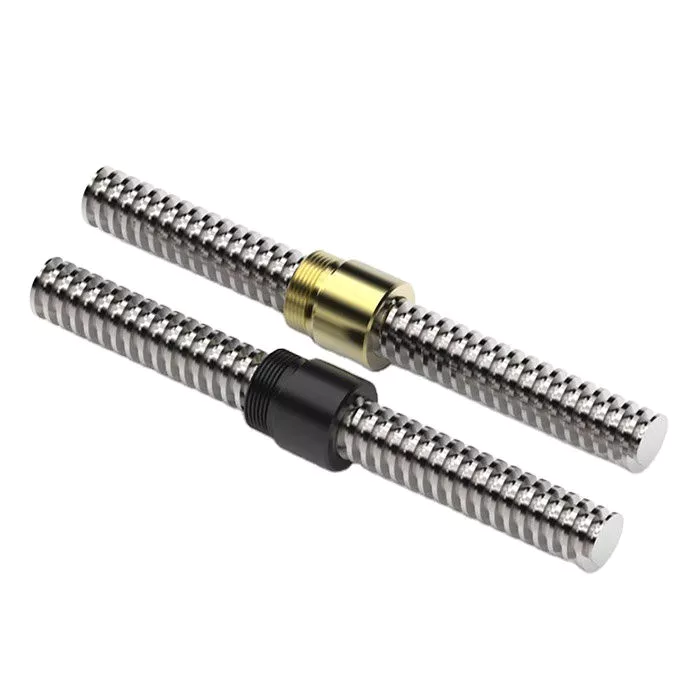
Self-locking property of screw shaft
A self-locking screw is 1 that is capable of rotating without the use of a lock washer or bolt. This property is dependent on a number of factors, but 1 of them is the pitch angle of the thread. A screw with a small pitch angle is less likely to self-lock, while a large pitch angle is more likely to spontaneously rotate. The limiting angle of a self-locking thread can be calculated by calculating the torque Mkdw at which the screw is first released.
The pitch angle of the screw’s threads and its coefficient of friction determine the self-locking function of the screw. Other factors that affect its self-locking function include environmental conditions, high or low temperature, and vibration. Self-locking screws are often used in single-line applications and are limited by the size of their pitch. Therefore, the self-locking property of the screw shaft depends on the specific application.
The self-locking feature of a screw is an important factor. If a screw is not in a state of motion, it can be a dangerous or unusable machine. The self-locking property of a screw is critical in many applications, from corkscrews to threaded pipe joints. Screws are also used as power linkages, although their use is rarely necessary for high-power operations. In the archimedes’ screw, for example, the blades of the screw rotate around an axis. A screw conveyor uses a rotating helical chamber to move materials. A micrometer uses a precision-calibrated screw to measure length.
Self-locking screws are commonly used in lead screw technology. Their pitch and coefficient of friction are important factors in determining the self-locking property of screws. This property is advantageous in many applications because it eliminates the need for a costly brake. Its self-locking property means that the screw will be secure without requiring a special kind of force or torque. There are many other factors that contribute to the self-locking property of a screw, but this is the most common factor.
Screws with right-hand threads have threads that angle up to the right. The opposite is true for left-hand screws. While turning a screw counter-clockwise will loosen it, a right-handed person will use a right-handed thumb-up to turn it. Similarly, a left-handed person will use their thumb to turn a screw counter-clockwise. And vice versa.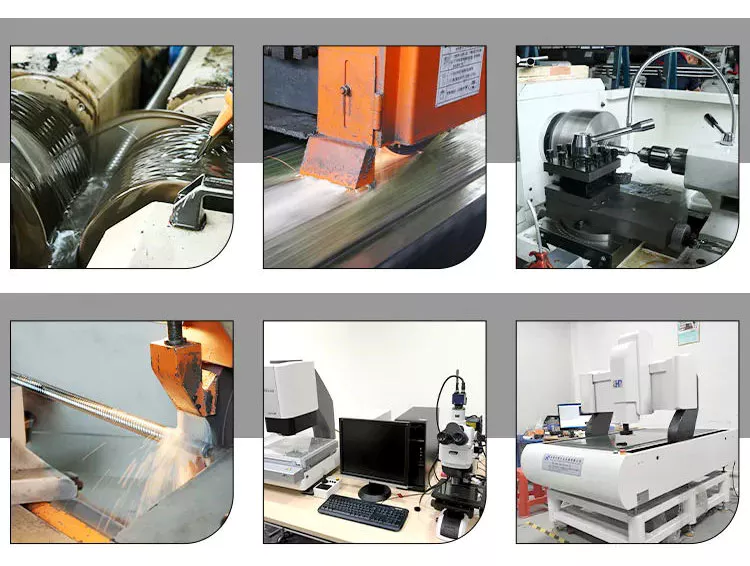
Materials used to manufacture screw shaft
Many materials are commonly used to manufacture screw shafts. The most common are steel, stainless steel, brass, bronze, and titanium. These materials have advantages and disadvantages that make them good candidates for screw production. Some screw types are also made of copper to fight corrosion and ensure durability over time. Other materials include nylon, Teflon, and aluminum. Brass screws are lightweight and have aesthetic appeal. The choice of material for a screw shaft depends on the use it will be made for.
Shafts are typically produced using 3 steps. Screws are manufactured from large coils, wire, or round bar stock. After these are produced, the blanks are cut to the appropriate length and cold headed. This cold working process pressudes features into the screw head. More complicated screw shapes may require 2 heading processes to achieve the desired shape. The process is very precise and accurate, so it is an ideal choice for screw manufacturing.
The type of material used to manufacture a screw shaft is crucial for the function it will serve. The type of material chosen will depend on where the screw is being used. If the screw is for an indoor project, you can opt for a cheaper, low-tech screw. But if the screw is for an outdoor project, you’ll need to use a specific type of screw. This is because outdoor screws will be exposed to humidity and temperature changes. Some screws may even be coated with a protective coating to protect them from the elements.
Screws can also be self-threading and self-tapping. The self-threading or self-tapping screw creates a complementary helix within the material. Other screws are made with a thread which cuts into the material it fastens. Other types of screws create a helical groove on softer material to provide compression. The most common uses of a screw include holding 2 components together.
There are many types of bolts available. Some are more expensive than others, but they are generally more resistant to corrosion. They can also be made from stainless steel or aluminum. But they require high-strength materials. If you’re wondering what screws are, consider this article. There are tons of options available for screw shaft manufacturing. You’ll be surprised how versatile they can be! The choice is yours, and you can be confident that you’ll find the screw shaft that will best fit your application.


China Professional Vkba3409 Vkba1472 Rear Wheel Hub Bearing Kit Assembly Unit 1604003 1604302 with Integrated ABS Sensor for Opell, Vauxhall with Good quality
Product Description
BASIC INFORMATION
| Description | Wheel Bearing Kit Wheel Hub Bearing Assembly |
||
| OE Number | 1604 | OPELL : 9054 VAUXHALL : VAUXHALL : |
VAUXHALL : VAUXHALL : 9571629 VAUXHALL : 9054 |
REFERENCE NUMBERS
| SKFF : VKBA 3409 FAGG : SNR : R153.23 A.B.S. : 2 AUGROS : 5183416/6 BRT Bearings : BRT 1232 CORTECO : 19017881 |
DELPHI : BK970 FEBI BILSTEIN : 57143 FEBI BILSTEIN : 2843 HK : 44/56 KACO : 4017.2 NK : 763615 OPTIMAL : 257142 QUINTON HAZELL : BK1571 |
QUINTON HAZELL : QWB877 RUVILLE : 5323 sbs : sbs : 763615 SPIDAN : 26864 TRISCAN : 853571213 WERTHENBACH : 771 |
APPLICABLE CAR MODELS
| Vehicle Models | Active Years | Engine | Displacement | Power | Cons.Type |
| OPELL ASTRA F (T92) 1.4 i (F19, M19) | 1991-1998 | C 14 NZ,X 14 NZ | 1389 | 44 | Saloon |
| OPELL ASTRA F CLASSIC Estate (T92) 1.4 i (F35, M35) | 1998-2005 | X 14 NZ | 1389 | 44 | Estate |
| OPELL ASTRA F CLASSIC Hatchback (T92) 1.4 i (M08, M68, F08, F68) | 1998-2002 | X 14 NZ | 1389 | 44 | Hatchback |
| OPELL ASTRA F Convertible (T92) 1.4 i 16V | 1996-2001 | X 14 XE | 1389 | 66 | Convertible |
| OPELL ASTRA F Estate (T92) 1.4 (F35, M35) | 1992-1998 | 14 SE | 1389 | 60 | Estate |
| VAUXHALL ASTRA Mk III (F) Convertible (T92) 1.6 i | 1996-2001 | X 16 SZR | 1598 | 55 | Convertible |
| VAUXHALL ASTRA Mk III (F) Estate (T92) 1.4 i | 1991-1998 | C 14 NZ,X 14 NZ | 1389 | 44 | Estate |
DETAILED IMAGES
PACKAGING & SHIPPING
| Packaging Details | 1 piece in a single box 2 boxes in a carton 30 cartons in a pallet |
| Nearest Port | ZheJiang or HangZhou |
| Lead Time | For stock parts: 1-5 days. If no stock parts: <20 pcs: 15-30 days ≥20 pcs: to be negotiated. |
OUR SERVICES
– We have more than 20 years experience in auto bearings fields.
– Excellent quality control is 1 of our main principles
– We offer OEM service, accept customer label, develop the product with your drawings or samples
– Any questions will get response within 24 hours.
FAQ
1.How do you make our business long-term and good relationship?
– We keep good quality and competitive price to ensure our customers benefit ;
– We respect every customer as our friend and we sincerely do business and make friends with them,
no matter where they come from.
2.Do you test all your goods before delivery?
– Yes, we have 100% test before delivery
3. What is your terms of payment?
– T/T 30% as deposit, and 70% before delivery. We’ll show you the photos of the products and packages
before you pay the balance.
4. What is your terms of delivery?
– EXW, FOB, CFR, CIF, DDU.
What Are the Advantages of a Splined Shaft?
If you are looking for the right splined shaft for your machine, you should know a few important things. First, what type of material should be used? Stainless steel is usually the most appropriate choice, because of its ability to offer low noise and fatigue failure. Secondly, it can be machined using a slotting or shaping machine. Lastly, it will ensure smooth motion. So, what are the advantages of a splined shaft?
Stainless steel is the best material for splined shafts
When choosing a splined shaft, you should consider its hardness, quality, and finish. Stainless steel has superior corrosion and wear resistance. Carbon steel is another good material for splined shafts. Carbon steel has a shallow carbon content (about 1.7%), which makes it more malleable and helps ensure smooth motion. But if you’re not willing to spend the money on stainless steel, consider other options.
There are 2 main types of splines: parallel splines and crowned splines. Involute splines have parallel grooves and allow linear and rotary motion. Helical splines have involute teeth and are oriented at an angle. This type allows for many teeth on the shaft and minimizes the stress concentration in the stationary joint.
Large evenly spaced splines are widely used in hydraulic systems, drivetrains, and machine tools. They are typically made from carbon steel (CR10) and stainless steel (AISI 304). This material is durable and meets the requirements of ISO 14-B, formerly DIN 5463-B. Splined shafts are typically made of stainless steel or C45 steel, though there are many other materials available.
Stainless steel is the best material for a splined shaft. This metal is also incredibly affordable. In most cases, stainless steel is the best choice for these shafts because it offers the best corrosion resistance. There are many different types of splined shafts, and each 1 is suited for a particular application. There are also many different types of stainless steel, so choose stainless steel if you want the best quality.
For those looking for high-quality splined shafts, CZPT Spline Shafts offer many benefits. They can reduce costs, improve positional accuracy, and reduce friction. With the CZPT TFE coating, splined shafts can reduce energy and heat buildup, and extend the life of your products. And, they’re easy to install – all you need to do is install them.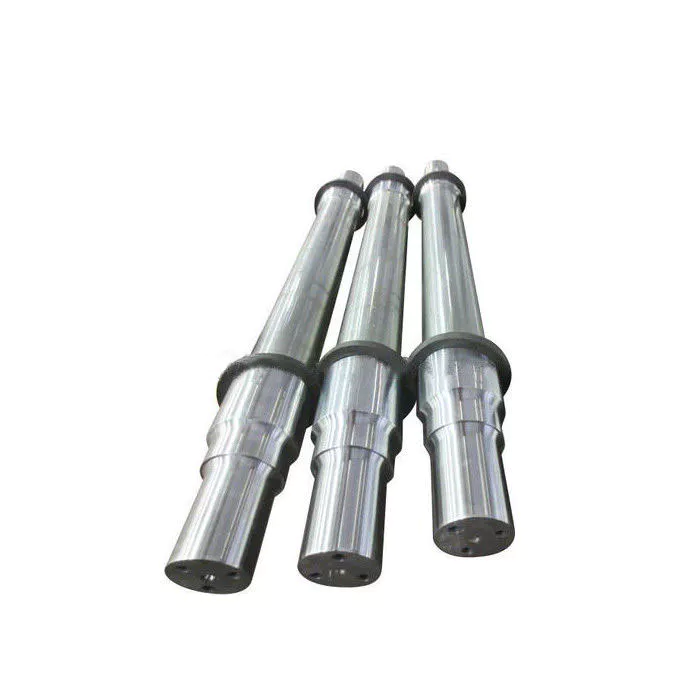
They provide low noise, low wear and fatigue failure
The splines in a splined shaft are composed of 2 main parts: the spline root fillet and the spline relief. The spline root fillet is the most critical part, because fatigue failure starts there and propagates to the relief. The spline relief is more susceptible to fatigue failure because of its involute tooth shape, which offers a lower stress to the shaft and has a smaller area of contact.
The fatigue life of splined shafts is determined by measuring the S-N curve. This is also known as the Wohler curve, and it is the relationship between stress amplitude and number of cycles. It depends on the material, geometry and way of loading. It can be obtained from a physical test on a uniform material specimen under a constant amplitude load. Approximations for low-alloy steel parts can be made using a lower-alloy steel material.
Splined shafts provide low noise, minimal wear and fatigue failure. However, some mechanical transmission elements need to be removed from the shaft during assembly and manufacturing processes. The shafts must still be capable of relative axial movement for functional purposes. As such, good spline joints are essential to high-quality torque transmission, minimal backlash, and low noise. The major failure modes of spline shafts include fretting corrosion, tooth breakage, and fatigue failure.
The outer disc carrier spline is susceptible to tensile stress and fatigue failure. High customer demands for low noise and low wear and fatigue failure makes splined shafts an excellent choice. A fractured spline gear coupling was received for analysis. It was installed near the top of a filter shaft and inserted into the gearbox motor. The service history was unknown. The fractured spline gear coupling had longitudinally cracked and arrested at the termination of the spline gear teeth. The spline gear teeth also exhibited wear and deformation.
A new spline coupling method detects fault propagation in hollow cylindrical splined shafts. A spline coupling is fabricated using an AE method with the spline section unrolled into a metal plate of the same thickness as the cylinder wall. In addition, the spline coupling is misaligned, which puts significant concentration on the spline teeth. This further accelerates the rate of fretting fatigue and wear.
A spline joint should be lubricated after 25 hours of operation. Frequent lubrication can increase maintenance costs and cause downtime. Moreover, the lubricant may retain abrasive particles at the interfaces. In some cases, lubricants can even cause misalignment, leading to premature failure. So, the lubrication of a spline coupling is vital in ensuring proper functioning of the shaft.
The design of a spline coupling can be optimized to enhance its wear resistance and reliability. Surface treatments, loads, and rotation affect the friction properties of a spline coupling. In addition, a finite element method was developed to predict wear of a floating spline coupling. This method is feasible and provides a reliable basis for predicting the wear and fatigue life of a spline coupling.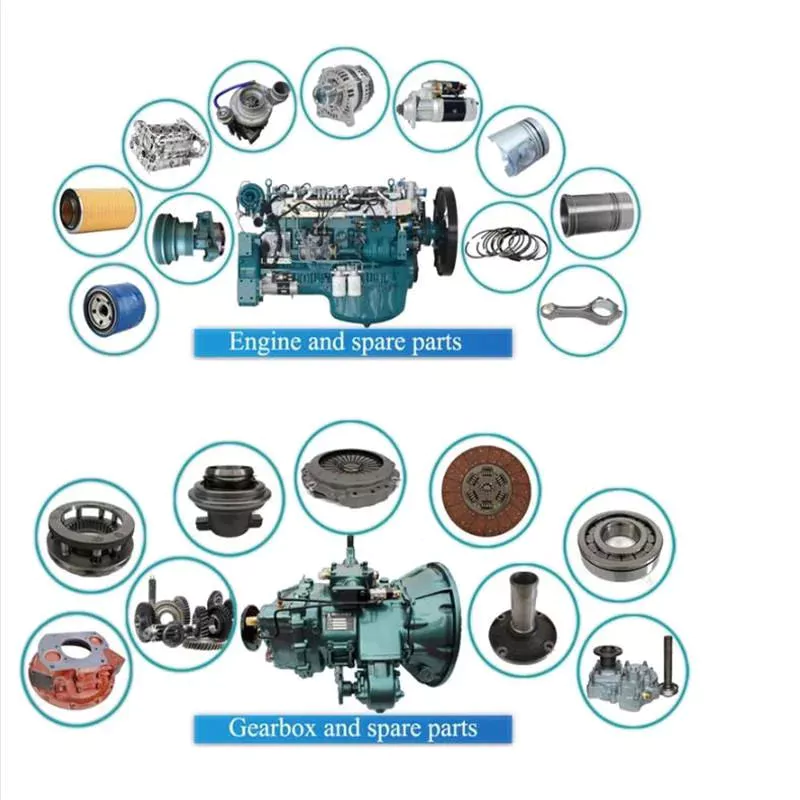
They can be machined using a slotting or shaping machine
Machines can be used to shape splined shafts in a variety of industries. They are useful in many applications, including gearboxes, braking systems, and axles. A slotted shaft can be manipulated in several ways, including hobbling, broaching, and slotting. In addition to shaping, splines are also useful in reducing bar diameter.
When using a slotting or shaping machine, the workpiece is held against a pedestal that has a uniform thickness. The machine is equipped with a stand column and limiting column (Figure 1), each positioned perpendicular to the upper surface of the pedestal. The limiting column axis is located on the same line as the stand column. During the slotting or shaping process, the tool is fed in and out until the desired space is achieved.
One process involves cutting splines into a shaft. Straddle milling, spline shaping, and spline cutting are 2 common processes used to create splined shafts. Straddle milling involves a fixed indexing fixture that holds the shaft steady, while rotating milling cutters cut the groove in the length of the shaft. Several passes are required to ensure uniformity throughout the spline.
Splines are a type of gear. The ridges or teeth on the drive shaft mesh with grooves in the mating piece. A splined shaft allows the transmission of torque to a mate piece while maximizing the power transfer. Splines are used in heavy vehicles, construction, agriculture, and massive earthmoving machinery. Splines are used in virtually every type of rotary motion, from axles to transmission systems. They also offer better fatigue life and reliability.
Slotting or shaping machines can also be used to shape splined shafts. Slotting machines are often used to machine splined shafts, because it is easier to make them with these machines. Using a slotting or shaping machine can result in splined shafts of different sizes. It is important to follow a set of spline standards to ensure your parts are manufactured to the highest standards.
A milling machine is another option for producing splined shafts. A spline shaft can be set up between 2 centers in an indexing fixture. Two side milling cutters are mounted on an arbor and a spacer and shims are inserted between them. The arbor and cutters are then mounted to a milling machine spindle. To make sure the cutters center themselves over the splined shaft, an adjustment must be made to the spindle of the machine.
The machining process is very different for internal and external splines. External splines can be broached, shaped, milled, or hobbed, while internal splines cannot. These machines use hard alloy, but they are not as good for internal splines. A machine with a slotting mechanism is necessary for these operations.


China Good quality CZPT CZPT Truck Spare Parts Rear Wheel Hub Roller Bearing Wg9231030222 30222 for Truck Axle Parts wholesaler
Product Description
CZPT CZPT truck spare parts rear wheel hub roller bearing WG for truck axle parts
Product Parameters
| Number | WG |
| Name |
Roller Bearing |
| Specification |
Standard |
| Place of origin |
HangZhou China |
| Packing |
As your request |
| Delivery Port |
Any Port |
| Payment Terms |
L/C,T/T,Western Union, Paypal and others |
| Delivery Time |
In 7-15 days |
Detailed Photos
Packaging & Shipping
Our Advantages
HangZhou Sero Import&Export Co.,Ltd. is located in HangZhou city which is a comprehensive trading company that manages all heavy duty truck and light truck auto parts.
We are the authorized dealer of CZPT , deal all series of CZPT models (HOWO,A7,T5G,T7H,70 mining dump truck and etc.) , also engaged in SHACMAN,FOTON,FAW,XIHU (WEST LAKE) DIS.,XIHU (WEST LAKE) DIS.FENG,JAC,XIHU (WEST LAKE) DIS.N heavy duty and light trucks , we provide original and after the market and quality OEM parts .
Our products have been exported to various countries in the world with high quality and competitive price and are well recognized both domestic and abroad.We sincerely promises to all customers and partners to provide excellent products, work together for common development.
Struggle, integrity, thanksgiving, quality is our constant pursuit.
FAQ
1. Q: Are you a manufacturer or trading company?A: We are manufacturer.
2. Q: What about your products quality? A:”Quality is priority. ” We always attach great importance to quality controlling from the very beginning.
3.Q:What payment do you accept? A: T/T, L/C, Trade assurance;
What Are Worm Gears and Worm Shafts?
If you’re looking for a fishing reel with a worm gear system, you’ve probably come across the term ‘worm gear’. But what are worm gears and worm shafts? And what are the advantages and disadvantages of worm gears? Let’s take a closer look! Read on to learn more about worm gears and shafts! Then you’ll be well on your way to purchasing a reel with a worm gear system.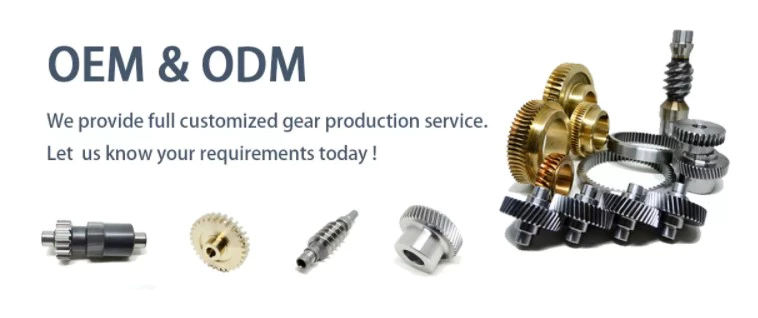
worm gear reducers
Worm shaft reducers have a number of advantages over conventional gear reduction mechanisms. First, they’re highly efficient. While single stage worm reducers have a maximum reduction ratio of about 5 to 60, hypoid gears can typically go up to a maximum of 1 hundred and 20 times. A worm shaft reducer is only as efficient as the gearing it utilizes. This article will discuss some of the advantages of using a hypoid gear set, and how it can benefit your business.
To assemble a worm shaft reducer, first remove the flange from the motor. Then, remove the output bearing carrier and output gear assembly. Lastly, install the intermediate worm assembly through the bore opposite to the attachment housing. Once installed, you should carefully remove the bearing carrier and the gear assembly from the motor. Don’t forget to remove the oil seal from the housing and motor flange. During this process, you must use a small hammer to tap around the face of the plug near the outside diameter of the housing.
Worm gears are often used in reversing prevention systems. The backlash of a worm gear can increase with wear. However, a duplex worm gear was designed to address this problem. This type of gear requires a smaller backlash but is still highly precise. It uses different leads for the opposing tooth face, which continuously alters its tooth thickness. Worm gears can also be adjusted axially.
worm gears
There are a couple of different types of lubricants that are used in worm gears. The first, polyalkylene glycols, are used in cases where high temperature is not a concern. This type of lubricant does not contain any waxes, which makes it an excellent choice in low-temperature applications. However, these lubricants are not compatible with mineral oils or some types of paints and seals. Worm gears typically feature a steel worm and a brass wheel. The brass wheel is much easier to remodel than steel and is generally modeled as a sacrificial component.
The worm gear is most effective when it is used in small and compact applications. Worm gears can greatly increase torque or reduce speed, and they are often used where space is an issue. Worm gears are among the smoothest and quietest gear systems on the market, and their meshing effectiveness is excellent. However, the worm gear requires high-quality manufacturing to perform at its highest levels. If you’re considering a worm gear for a project, it’s important to make sure that you find a manufacturer with a long and high quality reputation.
The pitch diameters of both worm and pinion gears must match. The 2 worm cylinders in a worm wheel have the same pitch diameter. The worm wheel shaft has 2 pitch cylinders and 2 threads. They are similar in pitch diameter, but have different advancing angles. A self-locking worm gear, also known as a wormwheel, is usually self-locking. Moreover, self-locking worm gears are easy to install.
worm shafts
The deflection of worm shafts varies with toothing parameters. In addition to toothing length, worm gear size and pressure angle, worm gear size and number of helical threads are all influencing factors. These variations are modeled in the standard ISO/TS 14521 reference gear. This table shows the variations in each parameter. The ID indicates the worm shaft’s center distance. In addition, a new calculation method is presented for determining the equivalent bending diameter of the worm.
The deflection of worm shafts is investigated using a four-stage process. First, the finite element method is used to compute the deflection of a worm shaft. Then, the worm shaft is experimentally tested, comparing the results with the corresponding simulations. The final stage of the simulation is to consider the toothing geometry of 15 different worm gear toothings. The results of this step confirm the modeled results.
The lead on the right and left tooth surfaces of worms is the same. However, the lead can be varied along the worm shaft. This is called dual lead worm gear, and is used to eliminate play in the main worm gear of hobbing machines. The pitch diameters of worm modules are equal. The same principle applies to their pitch diameters. Generally, the lead angle increases as the number of threads decreases. Hence, the larger the lead angle, the less self-locking it becomes.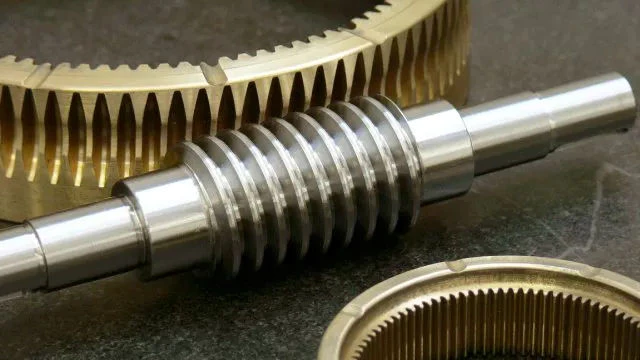
worm gears in fishing reels
Fishing reels usually include worm shafts as a part of the construction. Worm shafts in fishing reels allow for uniform worm winding. The worm shaft is attached to a bearing on the rear wall of the reel unit through a hole. The worm shaft’s front end is supported by a concave hole in the front of the reel unit. A conventional fishing reel may also have a worm shaft attached to the sidewall.
The gear support portion 29 supports the rear end of the pinion gear 12. It is a thick rib that protrudes from the lid portion 2 b. It is mounted on a bushing 14 b, which has a through hole through which the worm shaft 20 passes. This worm gear supports the worm. There are 2 types of worm gears available for fishing reels. The 2 types of worm gears may have different number of teeth or they may be the same.
Typical worm shafts are made of stainless steel. Stainless steel worm shafts are especially corrosion-resistant and durable. Worm shafts are used on spinning reels, spin-casting reels, and in many electrical tools. A worm shaft can be reversible, but it is not entirely reliable. There are numerous benefits of worm shafts in fishing reels. These fishing reels also feature a line winder or level winder.
worm gears in electrical tools
Worms have different tooth shapes that can help increase the load carrying capacity of a worm gear. Different tooth shapes can be used with circular or secondary curve cross sections. The pitch point of the cross section is the boundary for this type of mesh. The mesh can be either positive or negative depending on the desired torque. Worm teeth can also be inspected by measuring them over pins. In many cases, the lead thickness of a worm can be adjusted using a gear tooth caliper.
The worm shaft is fixed to the lower case section 8 via a rubber bush 13. The worm wheel 3 is attached to the joint shaft 12. The worm 2 is coaxially attached to the shaft end section 12a. This joint shaft connects to a swing arm and rotates the worm wheel 3.
The backlash of a worm gear may be increased if the worm is not mounted properly. To fix the problem, manufacturers have developed duplex worm gears, which are suitable for small backlash applications. Duplex worm gears utilize different leads on each tooth face for continuous change in tooth thickness. In this way, the center distance of the worm gear can be adjusted without changing the worm’s design.
worm gears in engines
Using worm shafts in engines has a few benefits. First of all, worm gears are quiet. The gear and worm face move in opposite directions so the energy transferred is linear. Worm gears are popular in applications where torque is important, such as elevators and lifts. Worm gears also have the advantage of being made from soft materials, making them easy to lubricate and to use in applications where noise is a concern.
Lubricants are necessary for worm gears. The viscosity of lubricants determines whether the worm is able to touch the gear or wheel. Common lubricants are ISO 680 and 460, but higher viscosity oil is not uncommon. It is essential to use the right lubricants for worm gears, since they cannot be lubricated indefinitely.
Worm gears are not recommended for engines due to their limited performance. The worm gear’s spiral motion causes a significant reduction in space, but this requires a high amount of lubrication. Worm gears are susceptible to breaking down because of the stress placed on them. Moreover, their limited speed can cause significant damage to the gearbox, so careful maintenance is essential. To make sure worm gears remain in top condition, you should inspect and clean them regularly.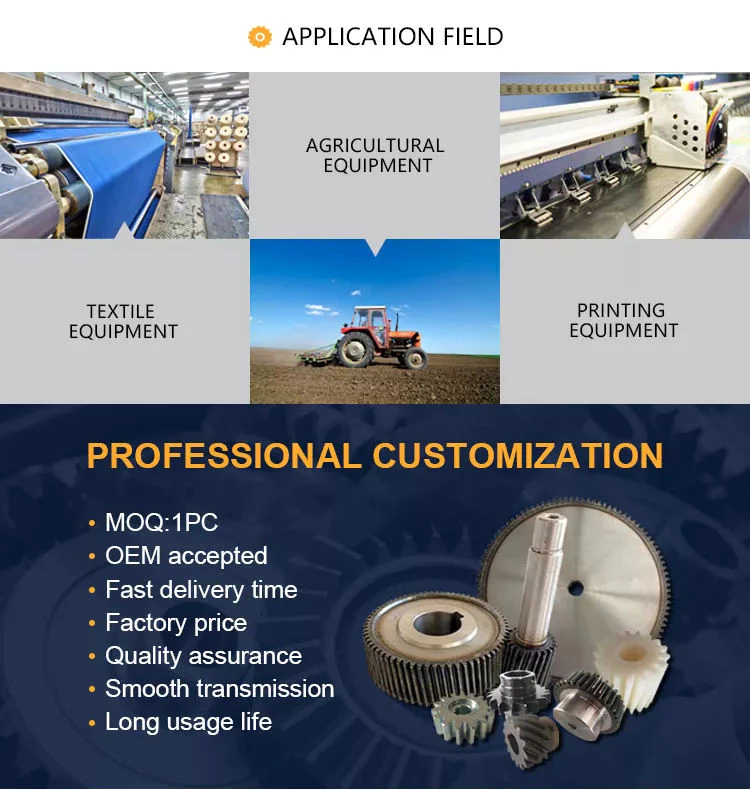
Methods for manufacturing worm shafts
A novel approach to manufacturing worm shafts and gearboxes is provided by the methods of the present invention. Aspects of the technique involve manufacturing the worm shaft from a common worm shaft blank having a defined outer diameter and axial pitch. The worm shaft blank is then adapted to the desired gear ratio, resulting in a gearbox family with multiple gear ratios. The preferred method for manufacturing worm shafts and gearboxes is outlined below.
A worm shaft assembly process may involve establishing an axial pitch for a given frame size and reduction ratio. A single worm shaft blank typically has an outer diameter of 100 millimeters, which is the measurement of the worm gear set’s center distance. Upon completion of the assembly process, the worm shaft has the desired axial pitch. Methods for manufacturing worm shafts include the following:
For the design of the worm gear, a high degree of conformity is required. Worm gears are classified as a screw pair in the lower pairs. Worm gears have high relative sliding, which is advantageous when comparing them to other types of gears. Worm gears require good surface finish and rigid positioning. Worm gear lubrication usually comprises surface active additives such as silica or phosphor-bronze. Worm gear lubricants are often mixed. The lubricant film that forms on the gear teeth has little impact on wear and is generally a good lubricant.


China best CZPT Rear Wheel Tapered Roller Bearing with High Quality for CZPT J5/J6 Series Truck Bearing High Speed Rear Axle Wheel Hub Taper Roller Bearing 30205 for Heavy with Hot selling
Product Description
Man truck company supply bellowing parts for all the Chinese brands heavy truck
Engine system parts: engine assy,filters,liner and parts,piston assy,injection pump,injector,water pump, oil pump,thermostat,connecting rod and bushing,camshaft,valve inlet and outlet,flywheel,belt tensioner,turbo charger,belt.
Transmission parts: gearbox assy,clutch,reducer assy,universal joint,differential assy,synchronizer,power take-offs,drive shaft.
Brake system parts: brake shoes, brake disc,brake friction plate,air booster,brake hydraulic pump.
Body parts: glass,mirror,nameplate,chairs,handle,grille,bumper,glass regulator,wiper,head lamp, rear lamp, fog lamp,tail lamp,brake lamp,corner lamp.
Travel system parts: front axle,rear axle,damping system parts, suspension system parts,rim,tires.
Steering system parts: steering gearbox,steering wheel,power steering pump,knuckle,tie-rod
We can supply the leaf spring for Sinotruk, Shacman, Fuwa. From 8mm-14mm :
WG9731520011
WG9731500041
WG9731522007
DZ9114525710
2.OEM Cross Reference
Loading Picture
Exhibition
FAQ
Q1.What is your terms of packing?
A:Generally,we pack our geods in Cartn boxes and then in wooden case.
Q2.What is your terms of pyment?
A: T/T, LC accept
Q3.What is your terms of delivery?
A: EXW, FOB, CIE, DAF etc
Q4. How about your delivery time?
A:Generally,it will take 3 to 7 days after receiving your advance payment.The specifie delivery time dependsity of your order.
Q5.Can you produce according to the samples?
A:Yes,we can produce by your smples or technical drawing.We build the molds and fixtures.
Q6.What is your sample policy?
A:We can supply the sampel if we have ready parts in stock but the customers have to pay the sample cost and the courier cost.
Q7.Do you test all your goods before delivery?
A:Yes,we have 100% test before delivery.
Q8.How do you make our business long-term and good relationship?
A:We keep good quality and competitive price to ensure our customernefits.
We promised send the lowest price and higher quality to you.
If you need,pls contact me any time–Elena
How to Identify a Faulty Drive Shaft
The most common problems associated with automotive driveshafts include clicking and rubbing noises. While driving, the noise from the driver’s seat is often noticeable. An experienced auto mechanic can easily identify whether the sound is coming from both sides or from 1 side. If you notice any of these signs, it’s time to send your car in for a proper diagnosis. Here’s a guide to determining if your car’s driveshaft is faulty: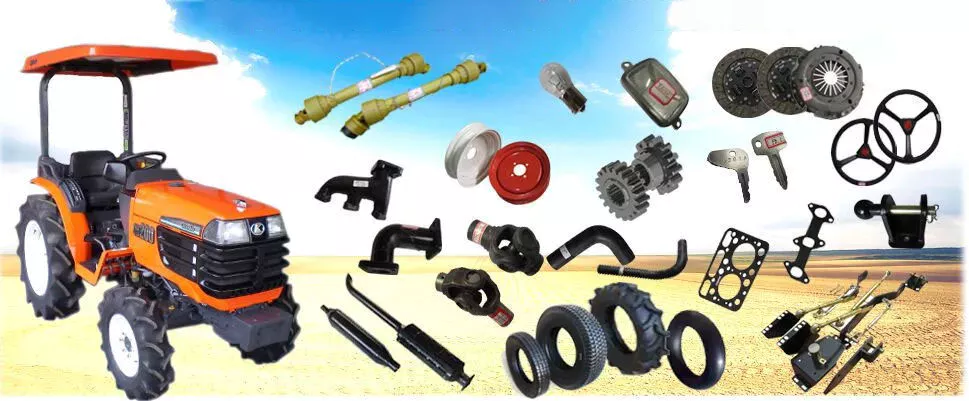
Symptoms of Driveshaft Failure
If you’re having trouble turning your car, it’s time to check your vehicle’s driveshaft. A bad driveshaft can limit the overall control of your car, and you should fix it as soon as possible to avoid further problems. Other symptoms of a propshaft failure include strange noises from under the vehicle and difficulty shifting gears. Squeaking from under the vehicle is another sign of a faulty driveshaft.
If your driveshaft fails, your car will stop. Although the engine will still run, the wheels will not turn. You may hear strange noises from under the vehicle, but this is a rare symptom of a propshaft failure. However, you will have plenty of time to fix the problem. If you don’t hear any noise, the problem is not affecting your vehicle’s ability to move.
The most obvious signs of a driveshaft failure are dull sounds, squeaks or vibrations. If the drive shaft is unbalanced, it is likely to damage the transmission. It will require a trailer to remove it from your vehicle. Apart from that, it can also affect your car’s performance and require repairs. So if you hear these signs in your car, be sure to have it checked by a mechanic right away.
Drive shaft assembly
When designing a propshaft, the design should be based on the torque required to drive the vehicle. When this torque is too high, it can cause irreversible failure of the drive shaft. Therefore, a good drive shaft design should have a long service life. Here are some tips to help you design a good driveshaft. Some of the main components of the driveshaft are listed below.
Snap Ring: The snap ring is a removable part that secures the bearing cup assembly in the yoke cross hole. It also has a groove for locating the snap ring. Spline: A spline is a patented tubular machined element with a series of ridges that fit into the grooves of the mating piece. The bearing cup assembly consists of a shaft and end fittings.
U-joint: U-joint is required due to the angular displacement between the T-shaped housing and the pinion. This angle is especially large in raised 4x4s. The design of the U-joint must guarantee a constant rotational speed. Proper driveshaft design must account for the difference in angular velocity between the shafts. The T-bracket and output shaft are attached to the bearing caps at both ends.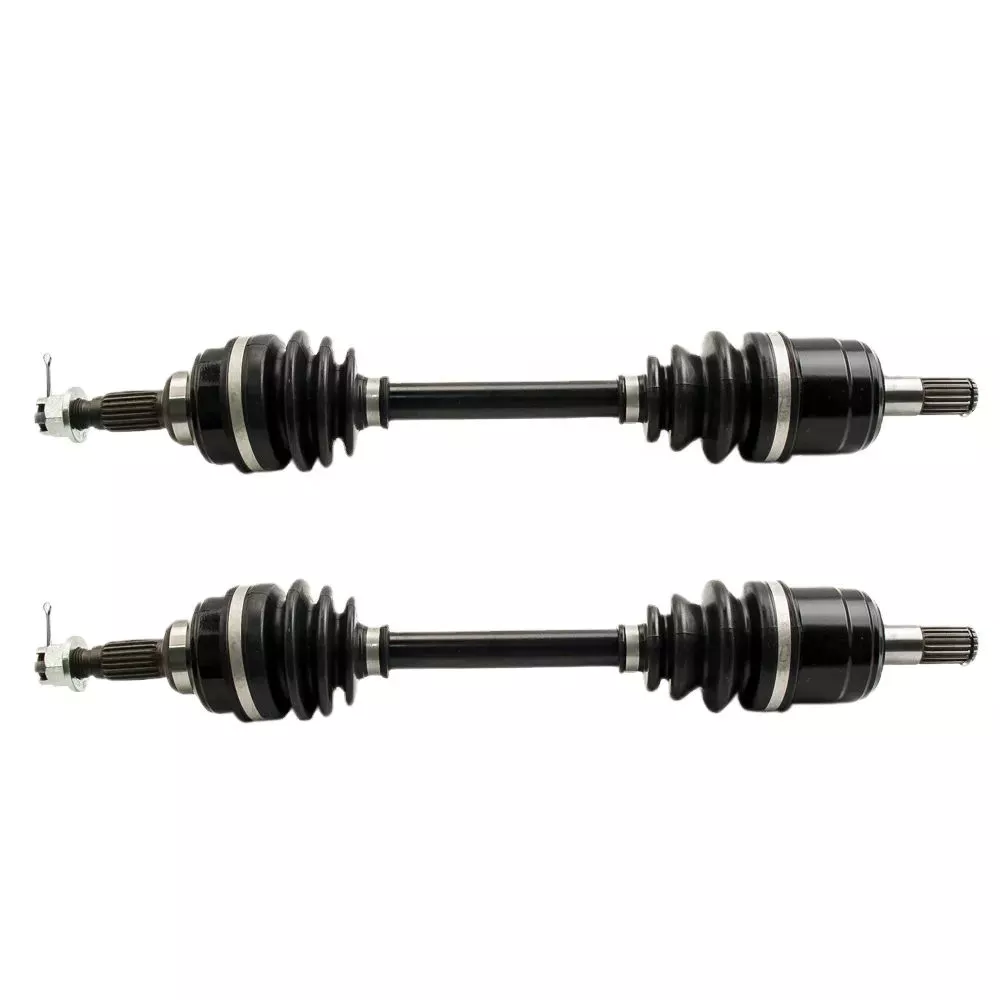
U-joint
Your vehicle has a set of U-joints on the driveshaft. If your vehicle needs to be replaced, you can do it yourself. You will need a hammer, ratchet and socket. In order to remove the U-joint, you must first remove the bearing cup. In some cases you will need to use a hammer to remove the bearing cup, you should be careful as you don’t want to damage the drive shaft. If you cannot remove the bearing cup, you can also use a vise to press it out.
There are 2 types of U-joints. One is held by a yoke and the other is held by a c-clamp. A full ring is safer and ideal for vehicles that are often used off-road. In some cases, a full circle can be used to repair a c-clamp u-joint.
In addition to excessive torque, extreme loads and improper lubrication are common causes of U-joint failure. The U-joint on the driveshaft can also be damaged if the engine is modified. If you are driving a vehicle with a heavily modified engine, it is not enough to replace the OE U-joint. In this case, it is important to take the time to properly lubricate these components as needed to keep them functional.
tube yoke
QU40866 Tube Yoke is a common replacement for damaged or damaged driveshaft tubes. They are desirably made of a metallic material, such as an aluminum alloy, and include a hollow portion with a lug structure at 1 end. Tube yokes can be manufactured using a variety of methods, including casting and forging. A common method involves drawing solid elements and machining them into the final shape. The resulting components are less expensive to produce, especially when compared to other forms.
The tube fork has a connection point to the driveshaft tube. The lug structure provides attachment points for the gimbal. Typically, the driveshaft tube is 5 inches in diameter and the lug structure is 4 inches in diameter. The lug structure also serves as a mounting point for the drive shaft. Once installed, Tube Yoke is easy to maintain. There are 2 types of lug structures: 1 is forged tube yoke and the other is welded.
Heavy-duty series drive shafts use bearing plates to secure the yoke to the U-joint. All other dimensions are secured with external snap rings. Yokes are usually machined to accept U-bolts. For some applications, grease fittings are used. This attachment is more suitable for off-road vehicles and performance vehicles.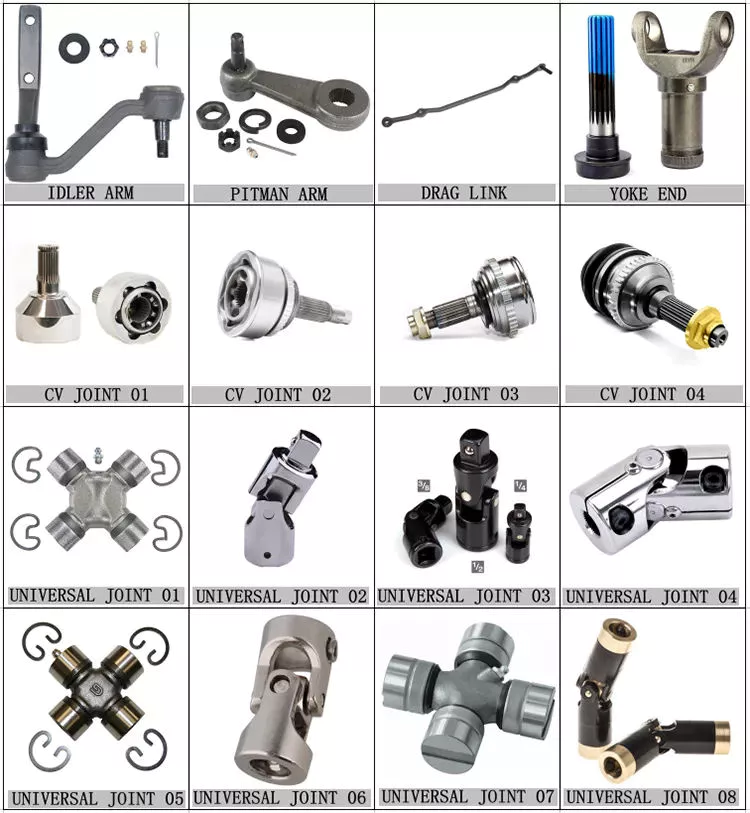
end yoke
The end yoke of the drive shaft is an integral part of the drive train. Choosing a high-quality end yoke will help ensure long-term operation and prevent premature failure. Pat’s Driveline offers a complete line of automotive end yokes for power take-offs, differentials and auxiliary equipment. They can also measure your existing parts and provide you with high quality replacements.
A U-bolt is an industrial fastener with threaded legs. When used on a driveshaft, it provides greater stability in unstable terrain. You can purchase a U-bolt kit to secure the pinion carrier to the drive shaft. U-bolts also come with lock washers and nuts. Performance cars and off-road vehicles often use this type of attachment. But before you install it, you have to make sure the yoke is machined to accept it.
End yokes can be made of aluminum or steel and are designed to provide strength. It also offers special bolt styles for various applications. CZPT’s drivetrain is also stocked with a full line of automotive flange yokes. The company also produces custom flanged yokes for many popular brands. Since the company has a comprehensive line of replacement flange yokes, it can help you transform your drivetrain from non-serviceable to serviceable.
bushing
The first step in repairing or replacing an automotive driveshaft is to replace worn or damaged bushings. These bushings are located inside the drive shaft to provide a smooth, safe ride. The shaft rotates in a rubber sleeve. If a bushing needs to be replaced, you should first check the manual for recommendations. Some of these components may also need to be replaced, such as the clutch or swingarm.


China factory 52710-29461 Vkba3794 Auto Spare Part Car Accessories Rear Axle Wheel Hub Bearing Units Assemblies for Hyundai near me shop
Product Description
Product Description
BASIC INFORMATION
| Description | 52710-29461 VKBA3794 Auto Spare Part Car Accessories Rear Axle Wheel Hub Bearing Units Assemblies for HYUNDAI | |
| OE Number | 52710-29461 | |
| Size | Inner Diameter: 28 mm Flange Diameter: 138.9 mm Bolt Circle Diameter: 4.50 In. Wheel Pilot Diameter: 2.64 In. Brake Pilot Diameter: 2.99 In. Flange Offset: 1.84 In. Hub Pilot Diameter: 2.64 In. Bolt Size: M12X1.5 Bolt Quantity: 4 Bolt Hole qty: N/A ABS Sensor: Has ABS with Tone Ring Sensor Number of Splines: N/A |
|
| Position | Rear Axle Left and Right | |
| Brand | SI, PPB | |
| Weight | 2.14 Kgs | |
| Place of Origin | ZHangZhoug, China | |
| Certification | ISO9 OPTIMAL : 922979 QUINTON HAZELL : QWB1077 |
RUVILLE : 8411 SPIDAN : 27076 SPIDAN : 27581 |
APPLICABLE CAR MODELS
| Vehicle Models | Cons.Type | Active Years | Service | Engine |
| HYUNDAI ACCENT I (X-3) 1.3 | Hatchback | 1994 – 2000 | 75 / 55 | G4DH, G4EH |
| HYUNDAI ACCENT I (X-3) 1.3 | Hatchback | 1994 – 2000 | 60 / 44 | G4CH, G4EH |
| HYUNDAI ACCENT I (X-3) 1.3 i 12V | Hatchback | 1994 – 2000 | 84 / 62 | G4EH |
| HYUNDAI ACCENT I (X-3) 1.5 i 12V | Hatchback | 1994 – 2000 | 88 / 65 | G4EK |
| HYUNDAI ACCENT I (X-3) 1.5 i 16V | Hatchback | 1995 – 2000 | 99 / 73 | G4FK |
DETAILED IMAGES
PACKAGING & SHIPPING
| Packaging Details | 1 piece in a single box 10 boxes in a carton 40 cartons in a pallet |
| Nearest Port | ZheJiang or HangZhou |
| Lead Time | For stock parts: 1-5 days. If no stock parts: <2000 pcs: 10-20 days ≥2000 pcs: to be negotiated. |
Company Profile
Our Advantages
1.ISO Standard
2.Bearing Small order accepted
3.In Stock bearing
4.OEM bearing service
5.Professional Technical Support
6.Timely pre-sale service
7.Competitive price
8.Full range of products on auto bearings
9.Punctual Delivery
11.Excellent after-sale service
Packaging & Shipping
The Different Types of Splines in a Splined Shaft
A splined shaft is a machine component with internal and external splines. The splines are formed in 4 different ways: Involute, Parallel, Serrated, and Ball. You can learn more about each type of spline in this article. When choosing a splined shaft, be sure to choose the right 1 for your application. Read on to learn about the different types of splines and how they affect the shaft’s performance.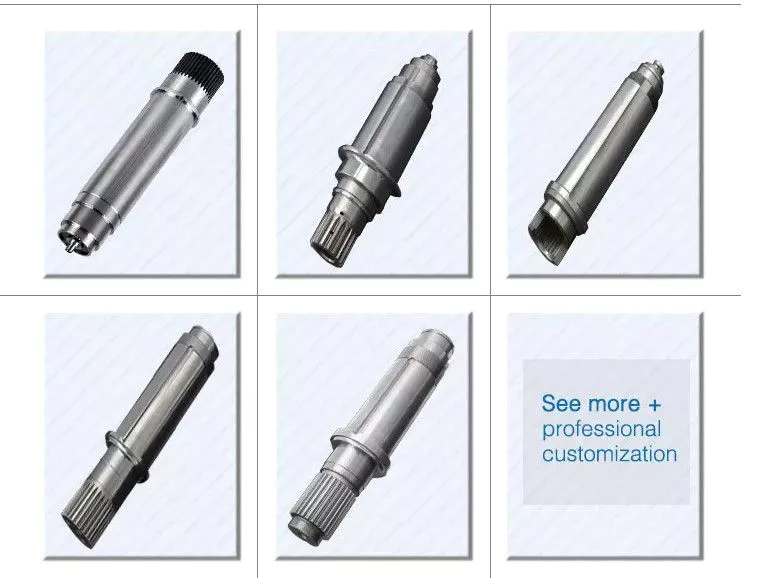
Involute splines
Involute splines in a splined shaft are used to secure and extend mechanical assemblies. They are smooth, inwardly curving grooves that resist separation during operation. A shaft with involute splines is often longer than the shaft itself. This feature allows for more axial movement. This is beneficial for many applications, especially in a gearbox.
The involute spline is a shaped spline, similar to a parallel spline. It is angled and consists of teeth that create a spiral pattern that enables linear and rotatory motion. It is distinguished from other splines by the serrations on its flanks. It also has a flat top. It is a good option for couplers and other applications where angular movement is necessary.
Involute splines are also called involute teeth because of their shape. They are flat on the top and curved on the sides. These teeth can be either internal or external. As a result, involute splines provide greater surface contact, which helps reduce stress and fatigue. Regardless of the shape, involute splines are generally easy to machine and fit.
Involute splines are a type of splines that are used in splined shafts. These splines have different names, depending on their diameters. An example set of designations is for a 32-tooth male spline, a 2,500-tooth module, and a 30 degree pressure angle. An example of a female spline, a fillet root spline, is used to describe the diameter of the splined shaft.
The effective tooth thickness of splines is dependent on the number of keyways and the type of spline. Involute splines in splined shafts should be designed to engage 25 to 50 percent of the spline teeth during the coupling. Involute splines should be able to withstand the load without cracking.
Parallel splines
Parallel splines are formed on a splined shaft by putting 1 or more teeth into another. The male spline is positioned at the center of the female spline. The teeth of the male spline are also parallel to the shaft axis, but a common misalignment causes the splines to roll and tilt. This is common in many industrial applications, and there are a number of ways to improve the performance of splines.
Typically, parallel splines are used to reduce friction in a rotating part. The splines on a splined shaft are narrower on the end face than the interior, which makes them more prone to wear. This type of spline is used in a variety of industries, such as machinery, and it also allows for greater efficiency when transmitting torque.
Involute splines on a splined shaft are the most common. They have equally spaced teeth, and are therefore less likely to crack due to fatigue. They also tend to be easy to cut and fit. However, they are not the best type of spline. It is important to understand the difference between parallel and involute splines before deciding on which spline to use.
The difference between splined and involute splines is the size of the grooves. Involute splines are generally larger than parallel splines. These types of splines provide more torque to the gear teeth and reduce stress during operation. They are also more durable and have a longer life span. And because they are used on farm machinery, they are essential in this type of application.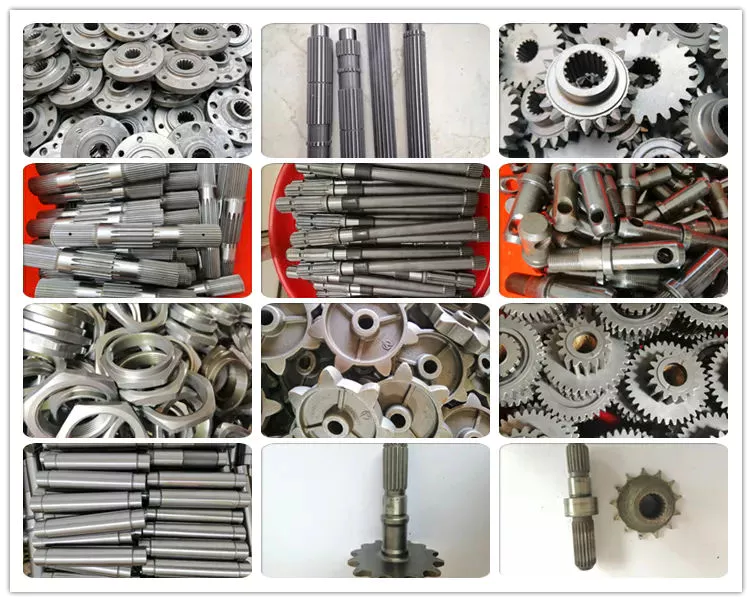
Serrated splines
A Serrated Splined Shaft has several advantages. This type of shaft is highly adjustable. Its large number of teeth allows large torques, and its shorter tooth width allows for greater adjustment. These features make this type of shaft an ideal choice for applications where accuracy is critical. Listed below are some of the benefits of this type of shaft. These benefits are just a few of the advantages. Learn more about this type of shaft.
The process of hobbing is inexpensive and highly accurate. It is useful for external spline shafts, but is not suitable for internal splines. This type of process forms synchronized shapes on the shaft, reducing the manufacturing cycle and stabilizing the relative phase between spline and thread. It uses a grinding wheel to shape the shaft. CZPT Manufacturing has a large inventory of Serrated Splined Shafts.
The teeth of a Serrated Splined Shaft are designed to engage with the hub over the entire circumference of the shaft. The teeth of the shaft are spaced uniformly around the spline, creating a multiple-tooth point of contact over the entire length of the shaft. The results of these analyses are usually satisfactory. But there are some limitations. To begin with, the splines of the Serrated Splined Shaft should be chosen carefully. If the application requires large-scale analysis, it may be necessary to modify the design.
The splines of the Serrated Splined Shaft are also used for other purposes. They can be used to transmit torque to another device. They also act as an anti-rotational device and function as a linear guide. Both the design and the type of splines determine the function of the Splined Shaft. In the automobile industry, they are used in vehicles, aerospace, earth-moving machinery, and many other industries.
Ball splines
The invention relates to a ball-spinned shaft. The shaft comprises a plurality of balls that are arranged in a series and are operatively coupled to a load path section. The balls are capable of rolling endlessly along the path. This invention also relates to a ball bearing. Here, a ball bearing is 1 of the many types of gears. The following discussion describes the features of a ball bearing.
A ball-splined shaft assembly comprises a shaft with at least 1 ball-spline groove and a plurality of circumferential step grooves. The shaft is held in a first holding means that extends longitudinally and is rotatably held by a second holding means. Both the shaft and the first holding means are driven relative to 1 another by a first driving means. It is possible to manufacture a ball-splined shaft in a variety of ways.
A ball-splined shaft features a nut with recirculating balls. The ball-splined nut rides in these grooves to provide linear motion while preventing rotation. A splined shaft with a nut that has recirculating balls can also provide rotary motion. A ball splined shaft also has higher load capacities than a ball bushing. For these reasons, ball splines are an excellent choice for many applications.
In this invention, a pair of ball-spinned shafts are housed in a box under a carrier device 40. Each of the 2 shafts extends along a longitudinal line of arm 50. One end of each shaft is supported rotatably by a slide block 56. The slide block also has a support arm 58 that supports the center arm 50 in a cantilever fashion.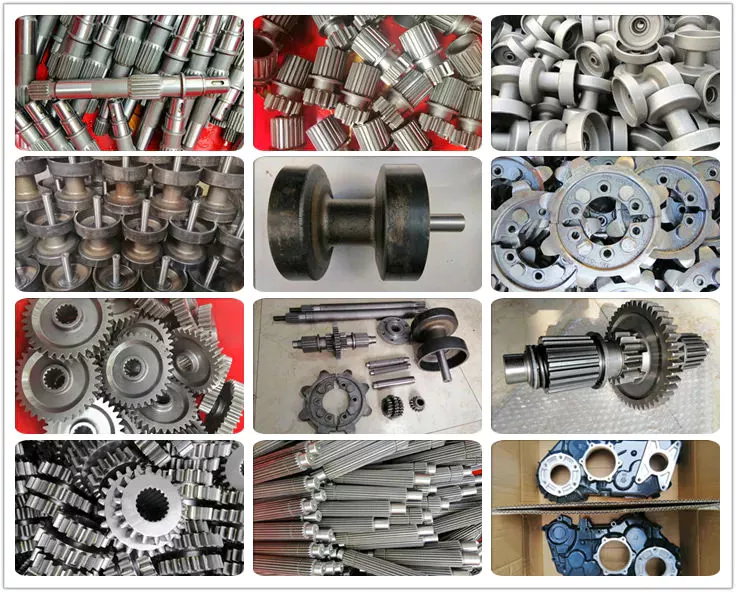
Sector no-go gage
A no-go gauge is a tool that checks the splined shaft for oversize. It is an effective way to determine the oversize condition of a splined shaft without removing the shaft. It measures external splines and serrations. The no-go gage is available in sizes ranging from 19mm to 130mm with a 25mm profile length.
The sector no-go gage has 2 groups of diametrally opposed teeth. The space between them is manufactured to a maximum space width and the tooth thickness must be within a predetermined tolerance. This gage would be out of tolerance if the splines were measured with a pin. The dimensions of this splined shaft can be found in the respective ANSI or DIN standards.
The go-no-go gage is useful for final inspection of thread pitch diameter. It is also useful for splined shafts and threaded nuts. The thread of a screw must match the contour of the go-no-go gage head to avoid a no-go condition. There is no substitute for a quality machine. It is an essential tool for any splined shaft and fastener manufacturer.
The NO-GO gage can detect changes in tooth thickness. It can be calibrated under ISO17025 standards and has many advantages over a non-go gage. It also gives a visual reference of the thickness of a splined shaft. When the teeth match, the shaft is considered ready for installation. It is a critical process. In some cases, it is impossible to determine the precise length of the shaft spline.
The 45-degree pressure angle is most commonly used for axles and torque-delivering members. This pressure angle is the most economical in terms of tool life, but the splines will not roll neatly like a 30 degree angle. The 45-degree spline is more likely to fall off larger than the other two. Oftentimes, it will also have a crowned look. The 37.5 degree pressure angle is a compromise between the other 2 pressure angles. It is often used when the splined shaft material is harder than usual.


China manufacturer Rear Axle Hub Bearing 42410-02020 42410-12090 512018 for Japanese Car Wheel Parts with Hot selling
Product Description
| Surface Treatment | polishing |
| Size | Drawing |
| Certificate | ISO9001:2008; TS16949 |
| MOQ | 1 sets |
| Packing | Customized |
| Sample | Available |
| Lead time | 10~30days depend on order |
1.Q:Are you trading company or manufacturer?
A: We are factory with more then 15years experience
2.Q: How long is your delivery time?
A: Generally it is 15-30days as we are Customized service we confirm with Customer
when place order
3.Q:Do you provide samples? ls it free or extra?
A: Yes we provide samples .for sample charge as per sample condition to decide free
or charged ,usually for not too much time used consumed machining process are free
4.Q:What is your terms of payment?
30% T/T in advance balance before shipment .Or as per discussion
5.Q: Can we know the production process without visiting the factory?
A:We will offer detailed production schedule and send weekly reports with digital
pictures and videos which show the machining progress
6.Q:Available for customized design drawings?
A: YesDWG.DXF.DXW.IGES.STEP. PDF etc
7.Q:Available for customized design drawings?
A: Yes ,we can sign the NDA before your send the drawing
8.Q:How do you guarantee the quality?
A:(1) Checking the raw material after they reach our factory——
Incoming quality control(IQC)
(2) Checking the details before the production line operated
(3) Have a full inspection and routing inspection during mass production—
In-process quality control(IPQC)
(4) Checking the goods after they are finished—- Final quality control(FQC)
(5) Checking the goods after they are finished—–Outgoing quality control(QC)
(6)100% inspection and delivery before shipment.
The Benefits of Spline Couplings for Disc Brake Mounting Interfaces
Spline couplings are commonly used for securing disc brake mounting interfaces. Spline couplings are often used in high-performance vehicles, aeronautics, and many other applications. However, the mechanical benefits of splines are not immediately obvious. Listed below are the benefits of spline couplings. We’ll discuss what these advantages mean for you. Read on to discover how these couplings work.
Disc brake mounting interfaces are splined
There are 2 common disc brake mounting interfaces – splined and six-bolt. Splined rotors fit on splined hubs; six-bolt rotors will need an adapter to fit on six-bolt hubs. The six-bolt method is easier to maintain and may be preferred by many cyclists. If you’re thinking of installing a disc brake system, it is important to know how to choose the right splined and center lock interfaces.
Aerospace applications
The splines used for spline coupling in aircraft are highly complex. While some previous researches have addressed the design of splines, few publications have tackled the problem of misaligned spline coupling. Nevertheless, the accurate results we obtained were obtained using dedicated simulation tools, which are not commercially available. Nevertheless, such tools can provide a useful reference for our approach. It would be beneficial if designers could use simple tools for evaluating contact pressure peaks. Our analytical approach makes it possible to find answers to such questions.
The design of a spline coupling for aerospace applications must be accurate to minimize weight and prevent failure mechanisms. In addition to weight reduction, it is necessary to minimize fretting fatigue. The pressure distribution on the spline coupling teeth is a significant factor in determining its fretting fatigue. Therefore, we use analytical and experimental methods to examine the contact pressure distribution in the axial direction of spline couplings.
The teeth of a spline coupling can be categorized by the type of engagement they provide. This study investigates the position of resultant contact forces in the teeth of a spline coupling when applied to pitch diameter. Using FEM models, numerical results are generated for nominal and parallel offset misalignments. The axial tooth profile determines the behavior of the coupling component and its ability to resist wear. Angular misalignment is also a concern, causing misalignment.
In order to assess wear damage of a spline coupling, we must take into consideration the impact of fretting on the components. This wear is caused by relative motion between the teeth that engage them. The misalignment may be caused by vibrations, cyclical tooth deflection, or angular misalignment. The result of this analysis may help designers improve their spline coupling designs and develop improved performance.
CZPT polyimide, an abrasion-resistant polymer, is a popular choice for high-temperature spline couplings. This material reduces friction and wear, provides a low friction surface, and has a low wear rate. Furthermore, it offers up to 50 times the life of metal on metal spline connections. For these reasons, it is important to choose the right material for your spline coupling.
High-performance vehicles
A spline coupler is a device used to connect splined shafts. A typical spline coupler resembles a short pipe with splines on either end. There are 2 basic types of spline coupling: single and dual spline. One type attaches to a drive shaft, while the other attaches to the gearbox. While spline couplings are typically used in racing, they’re also used for performance problems.
The key challenge in spline couplings is to determine the optimal dimension of spline joints. This is difficult because no commercial codes allow the simulation of misaligned joints, which can destroy components. This article presents analytical approaches to estimating contact pressures in spline connections. The results are comparable with numerical approaches but require special codes to accurately model the coupling operation. This research highlights several important issues and aims to make the application of spline couplings in high-performance vehicles easier.
The stiffness of spline assemblies can be calculated using tooth-like structures. Such splines can be incorporated into the spline joint to produce global stiffness for torsional vibration analysis. Bearing reactions are calculated for a certain level of misalignment. This information can be used to design bearing dimensions and correct misalignment. There are 3 types of spline couplings.
Major diameter fit splines are made with tightly controlled outside diameters. This close fit provides concentricity transfer from the male to the female spline. The teeth of the male spline usually have chamfered tips and clearance with fillet radii. These splines are often manufactured from billet steel or aluminum. These materials are renowned for their strength and uniform grain created by the forging process. ANSI and DIN design manuals define classes of fit.
Disc brake mounting interfaces
A spline coupling for disc brake mounting interfaces is a type of hub-to-brake-disc mount. It is a highly durable coupling mechanism that reduces heat transfer from the disc to the axle hub. The mounting arrangement also isolates the axle hub from direct contact with the disc. It is also designed to minimize the amount of vehicle downtime and maintenance required to maintain proper alignment.
Disc brakes typically have substantial metal-to-metal contact with axle hub splines. The discs are held in place on the hub by intermediate inserts. This metal-to-metal contact also aids in the transfer of brake heat from the brake disc to the axle hub. Spline coupling for disc brake mounting interfaces comprises a mounting ring that is either a threaded or non-threaded spline.
During drag brake experiments, perforated friction blocks filled with various additive materials are introduced. The materials included include Cu-based powder metallurgy material, a composite material, and a Mn-Cu damping alloy. The filling material affects the braking interface’s wear behavior and friction-induced vibration characteristics. Different filling materials produce different types of wear debris and have different wear evolutions. They also differ in their surface morphology.
Disc brake couplings are usually made of 2 different types. The plain and HD versions are interchangeable. The plain version is the simplest to install, while the HD version has multiple components. The two-piece couplings are often installed at the same time, but with different mounting interfaces. You should make sure to purchase the appropriate coupling for your vehicle. These interfaces are a vital component of your vehicle and must be installed correctly for proper operation.
Disc brakes use disc-to-hub elements that help locate the forces and displace them to the rim. These elements are typically made of stainless steel, which increases the cost of manufacturing the disc brake mounting interface. Despite their benefits, however, the high braking force loads they endure are hard on the materials. Moreover, excessive heat transferred to the intermediate elements can adversely affect the fatigue life and long-term strength of the brake system.


China high quality 8e0501611 Rear Axle Wheel Hub Bearing Unit for Audi Skoda Superb I VW Passat with Best Sales
Product Description
Products Description
Car fitment:
- AUDI
- A6 (4B2, C5) [1997-2005]
- A6 Avant (4B5, C5) [1997-2005]
- A6 1998-2004 FWD
- SKODA
- SUPERB I (3U4) [2001-2008]
- VOLKSWAGEN
- PASSAT (3B2) [1996-2001]
- PASSAT (3B3) [2000-2005]
- PASSAT Variant (3B5) [1997-2001]
- PASSAT Variant (3B6) [2000-2005]
- Passat 1998-2002
- Passat 2003-2005 FWD
- VW (SVW)
- PASSAT Saloon (B5) [2000-2009]
Specification:
Rear Axle
Flange Diameter: 5.2 In.
Bolt Circle Diameter: 4.4 In.
Wheel Pilot Diameter: 2.2 In.
Brake Pilot Diameter: 2.7 In.
Flange Offset: 2.8 In.
Hub Pilot Diameter: 1.5 In.
Hub Bolt Circle Diameter: 3.5 In.
Bolt Quantity: 5
Bolt Hole qty: 5
ABS Sensor: Yes
Number of Splines: N/A
Wheel Hub Bearing
A hub bearing, also known as a wheel hub bearing, enables the wheels and attached components to rotate smoothlyand keeps the wheel attached to the car. The bearings are mounted on a wheel hub, which is located between the brake drums and the axle.
Wheel bearings wear out over time due to age and contamination. As they wear out, excess play also develops in the bearing. The main signs of a damaged wheel hub bearing are abnormal noises and loose steering.
Our hub bearing assemblies are made from high quality materials for durability, reliability, and high performance.
A high quality seal design offers premium protection from contamination and ensures a clean, long lasting hub bearing.
Our hub bearings are precision-machined and pre-coated with an anti-corrosion lubricant for enhanced protection and performance. They are manufactured to meet or exceed expectations for performance and fit.
In addition, they are designed for quick and easy installation. Please note: Hub Bearings should always be replaced in pairs (front or rear).
In addition, hub bearings must be torqued to vehicle specifications to prevent failure.
Solver problem:
- Frequently unberable
- Car Jitter
- Power reduction
- Car noise
Features:
- Good Ball: Precision and dimensions are more stable.
-
Good grease: allow the bearing to roll smoother.
-
Durable quality: excellent metal material, wear-resistant and durable.
All products are all factory full inspection , like ABS detection,noise detection, cleareance detection for completed product, vibration detection, Angular clearance detection, Waterproof and dustproof detection and so on, making products more durable,more safe and life longer.
- Reduce abnormal noise,Stable driving
- High security
- Longer service life and lower maintenance cost.
- In-situ installation: Original specification,installation in 1 step. With accurately locate mounting holes.
Why choose us to be your cooperated supplier from China?
1. A wide range of Wheel Hub Bearingfor options.
2. Quality assurance: Advanced equipment, 100% finished product check, all of the products are inpsected carefully by QC before delivery. Product is Safe, Fixed,Stable,Durable.
3. Fast delivery, Prompt response,Professional staffs.
4. The customized components also can be manufactured
5. Neutral packing, export standard carton, or as your requirement.
6. Competive price: Order a HQ container, price will be more favorable.
Related Products
1. A wide range of Radiator Cooling Fan and other parts for options.
2. Quality assurance: Advanced equipment, 100% finished product check, all of the products are inpsected carefully by QC before delivery. Product is Safe, Fixed,Stable,Durable.
3. Fast delivery, Prompt response,Professional staffs.
4. The customized components also can be manufactured
5. Neutral packing, export standard carton, or as your requirement.
6. Competive price: Order a HQ container, price will be more favorable.
VW, AUDI, BENZ, BMW, PORSHCHE, LAND ROVER,Toyota, Nissan, Mitsubishi, Honda, Mazda , Hyundai Fordetc.
1. Clutch system
2. Cooling system
3. Electrical system
4. Transmission system
5. Steering system
6. Drive system
7. Suspension system
8.Braking syste
Company Introduction
FAQ
1. Is the product fit to your car model?
Please check if the parts are suitable for your model before purchase.
Or please tell us your Car Model and OE Number, and tell us the product name.
2. What you can supply to me?
We could supply all kinds of auto spare parts and accessories. Besides ,we provide OEM service, shipping service and QC service as well to make sure you get ONE-STOP purchase process from us.
3. Can you customize the products as per our request?
Yes, we do OEM and ODM. We could make the product suggestion based on your idea and budget.
4. How to get a sample from you?
All samples will be free if unit cost under 20USD,but the freight should be on your side. If you have express account like DHL,UPS etc we will send you directly, if you don’t have you can send express cost to our paypal account, any sample cost could be returned when you make order.
5. What’s your payment term?
We usually doing 30% deposit and 70% balance against copy of B/L by T/T, We also accept L/C ,D/P if total amount over $30000.
Welcome to your inqury now and built a long cooperatitive relationship with our professional service.
Windy Zhang
How to Determine the Quality of a Worm Shaft
There are many advantages of a worm shaft. It is easier to manufacture, as it does not require manual straightening. Among these benefits are ease of maintenance, reduced cost, and ease of installation. In addition, this type of shaft is much less prone to damage due to manual straightening. This article will discuss the different factors that determine the quality of a worm shaft. It also discusses the Dedendum, Root diameter, and Wear load capacity.
Root diameter
There are various options when choosing worm gearing. The selection depends on the transmission used and production possibilities. The basic profile parameters of worm gearing are described in the professional and firm literature and are used in geometry calculations. The selected variant is then transferred to the main calculation. However, you must take into account the strength parameters and the gear ratios for the calculation to be accurate. Here are some tips to choose the right worm gearing.
The root diameter of a worm gear is measured from the center of its pitch. Its pitch diameter is a standardized value that is determined from its pressure angle at the point of zero gearing correction. The worm gear pitch diameter is calculated by adding the worm’s dimension to the nominal center distance. When defining the worm gear pitch, you have to keep in mind that the root diameter of the worm shaft must be smaller than the pitch diameter.
Worm gearing requires teeth to evenly distribute the wear. For this, the tooth side of the worm must be convex in the normal and centre-line sections. The shape of the teeth, referred to as the evolvent profile, resembles a helical gear. Usually, the root diameter of a worm gear is more than a quarter inch. However, a half-inch difference is acceptable.
Another way to calculate the gearing efficiency of a worm shaft is by looking at the worm’s sacrificial wheel. A sacrificial wheel is softer than the worm, so most wear and tear will occur on the wheel. Oil analysis reports of worm gearing units almost always show a high copper and iron ratio, suggesting that the worm’s gearing is ineffective.
Dedendum
The dedendum of a worm shaft refers to the radial length of its tooth. The pitch diameter and the minor diameter determine the dedendum. In an imperial system, the pitch diameter is referred to as the diametral pitch. Other parameters include the face width and fillet radius. Face width describes the width of the gear wheel without hub projections. Fillet radius measures the radius on the tip of the cutter and forms a trochoidal curve.
The diameter of a hub is measured at its outer diameter, and its projection is the distance the hub extends beyond the gear face. There are 2 types of addendum teeth, 1 with short-addendum teeth and the other with long-addendum teeth. The gears themselves have a keyway (a groove machined into the shaft and bore). A key is fitted into the keyway, which fits into the shaft.
Worm gears transmit motion from 2 shafts that are not parallel, and have a line-toothed design. The pitch circle has 2 or more arcs, and the worm and sprocket are supported by anti-friction roller bearings. Worm gears have high friction and wear on the tooth teeth and restraining surfaces. If you’d like to know more about worm gears, take a look at the definitions below.
CZPT’s whirling process
Whirling process is a modern manufacturing method that is replacing thread milling and hobbing processes. It has been able to reduce manufacturing costs and lead times while producing precision gear worms. In addition, it has reduced the need for thread grinding and surface roughness. It also reduces thread rolling. Here’s more on how CZPT whirling process works.
The whirling process on the worm shaft can be used for producing a variety of screw types and worms. They can produce screw shafts with outer diameters of up to 2.5 inches. Unlike other whirling processes, the worm shaft is sacrificial, and the process does not require machining. A vortex tube is used to deliver chilled compressed air to the cutting point. If needed, oil is also added to the mix.
Another method for hardening a worm shaft is called induction hardening. The process is a high-frequency electrical process that induces eddy currents in metallic objects. The higher the frequency, the more surface heat it generates. With induction heating, you can program the heating process to harden only specific areas of the worm shaft. The length of the worm shaft is usually shortened.
Worm gears offer numerous advantages over standard gear sets. If used correctly, they are reliable and highly efficient. By following proper setup guidelines and lubrication guidelines, worm gears can deliver the same reliable service as any other type of gear set. The article by Ray Thibault, a mechanical engineer at the University of Virginia, is an excellent guide to lubrication on worm gears.
Wear load capacity
The wear load capacity of a worm shaft is a key parameter when determining the efficiency of a gearbox. Worms can be made with different gear ratios, and the design of the worm shaft should reflect this. To determine the wear load capacity of a worm, you can check its geometry. Worms are usually made with teeth ranging from 1 to 4 and up to twelve. Choosing the right number of teeth depends on several factors, including the optimisation requirements, such as efficiency, weight, and centre-line distance.
Worm gear tooth forces increase with increased power density, causing the worm shaft to deflect more. This reduces its wear load capacity, lowers efficiency, and increases NVH behavior. Advances in lubricants and bronze materials, combined with better manufacturing quality, have enabled the continuous increase in power density. Those 3 factors combined will determine the wear load capacity of your worm gear. It is critical to consider all 3 factors before choosing the right gear tooth profile.
The minimum number of gear teeth in a gear depends on the pressure angle at zero gearing correction. The worm diameter d1 is arbitrary and depends on a known module value, mx or mn. Worms and gears with different ratios can be interchanged. An involute helicoid ensures proper contact and shape, and provides higher accuracy and life. The involute helicoid worm is also a key component of a gear.
Worm gears are a form of ancient gear. A cylindrical worm engages with a toothed wheel to reduce rotational speed. Worm gears are also used as prime movers. If you’re looking for a gearbox, it may be a good option. If you’re considering a worm gear, be sure to check its load capacity and lubrication requirements.
NVH behavior
The NVH behavior of a worm shaft is determined using the finite element method. The simulation parameters are defined using the finite element method and experimental worm shafts are compared to the simulation results. The results show that a large deviation exists between the simulated and experimental values. In addition, the bending stiffness of the worm shaft is highly dependent on the geometry of the worm gear toothings. Hence, an adequate design for a worm gear toothing can help reduce the NVH (noise-vibration) behavior of the worm shaft.
To calculate the worm shaft’s NVH behavior, the main axes of moment of inertia are the diameter of the worm and the number of threads. This will influence the angle between the worm teeth and the effective distance of each tooth. The distance between the main axes of the worm shaft and the worm gear is the analytical equivalent bending diameter. The diameter of the worm gear is referred to as its effective diameter.
The increased power density of a worm gear results in increased forces acting on the corresponding worm gear tooth. This leads to a corresponding increase in deflection of the worm gear, which negatively affects its efficiency and wear load capacity. In addition, the increasing power density requires improved manufacturing quality. The continuous advancement in bronze materials and lubricants has also facilitated the continued increase in power density.
The toothing of the worm gears determines the worm shaft deflection. The bending stiffness of the worm gear toothing is also calculated by using a tooth-dependent bending stiffness. The deflection is then converted into a stiffness value by using the stiffness of the individual sections of the worm shaft. As shown in figure 5, a transverse section of a two-threaded worm is shown in the figure.

